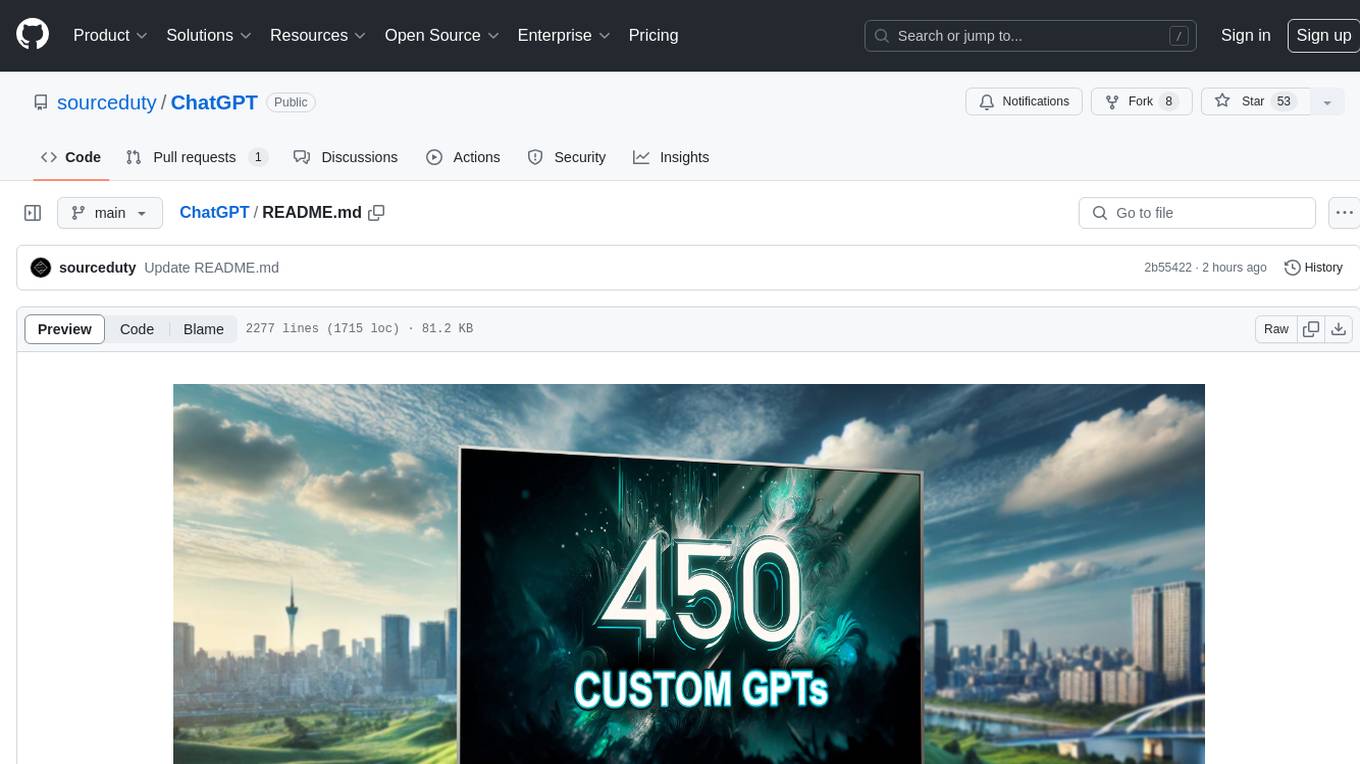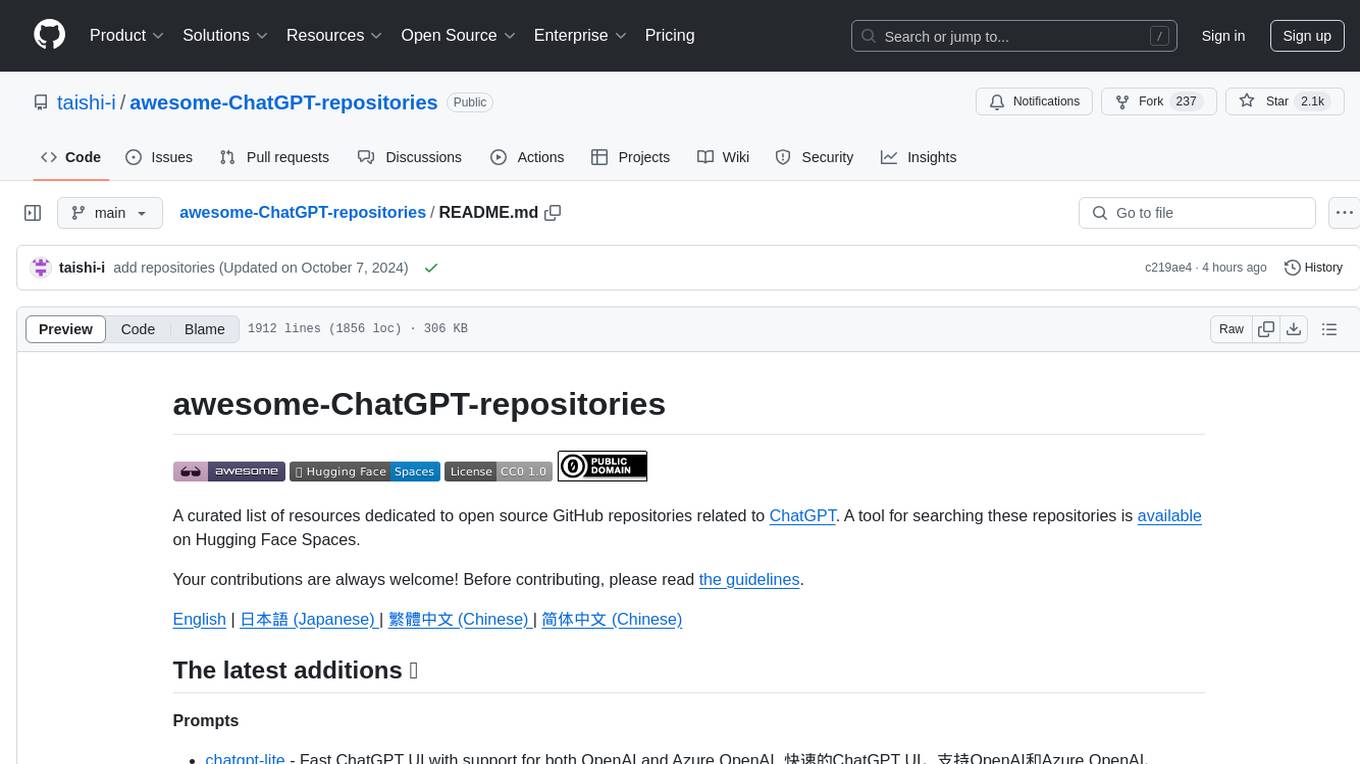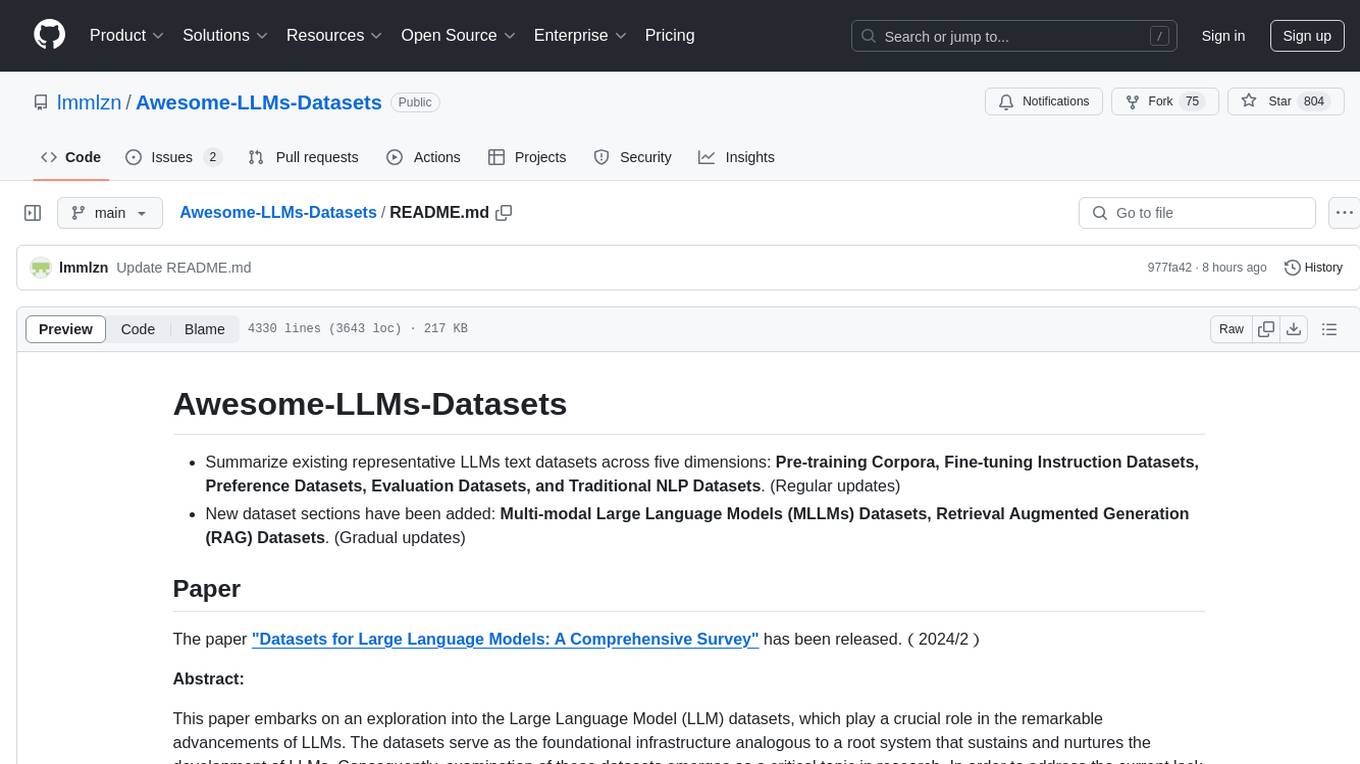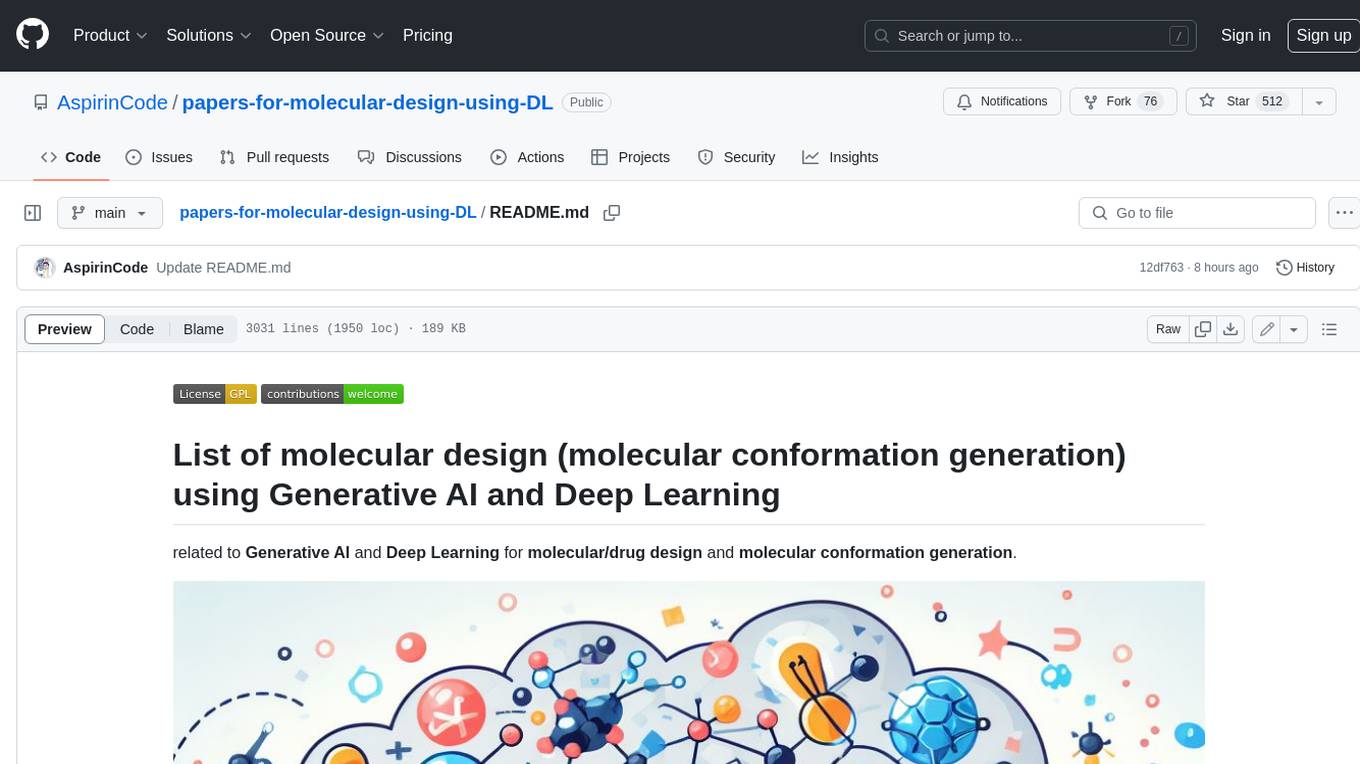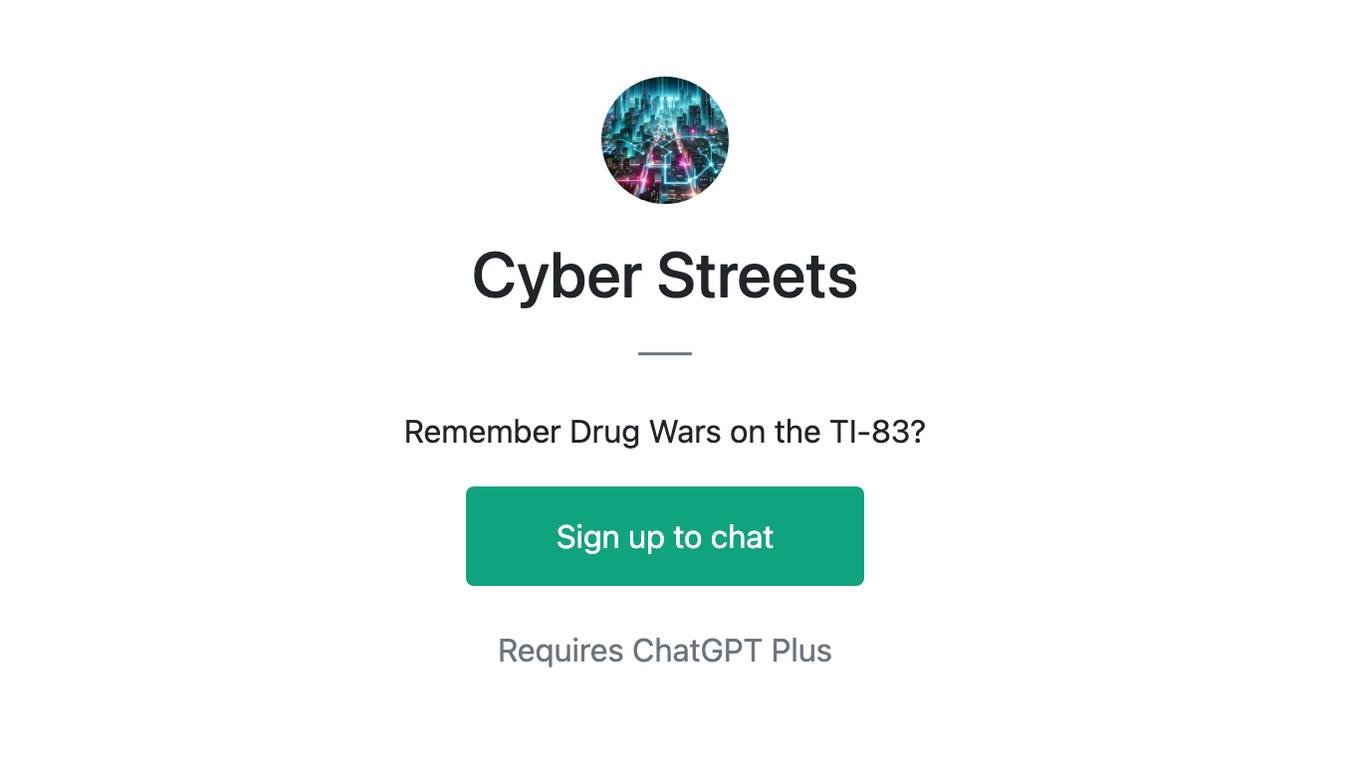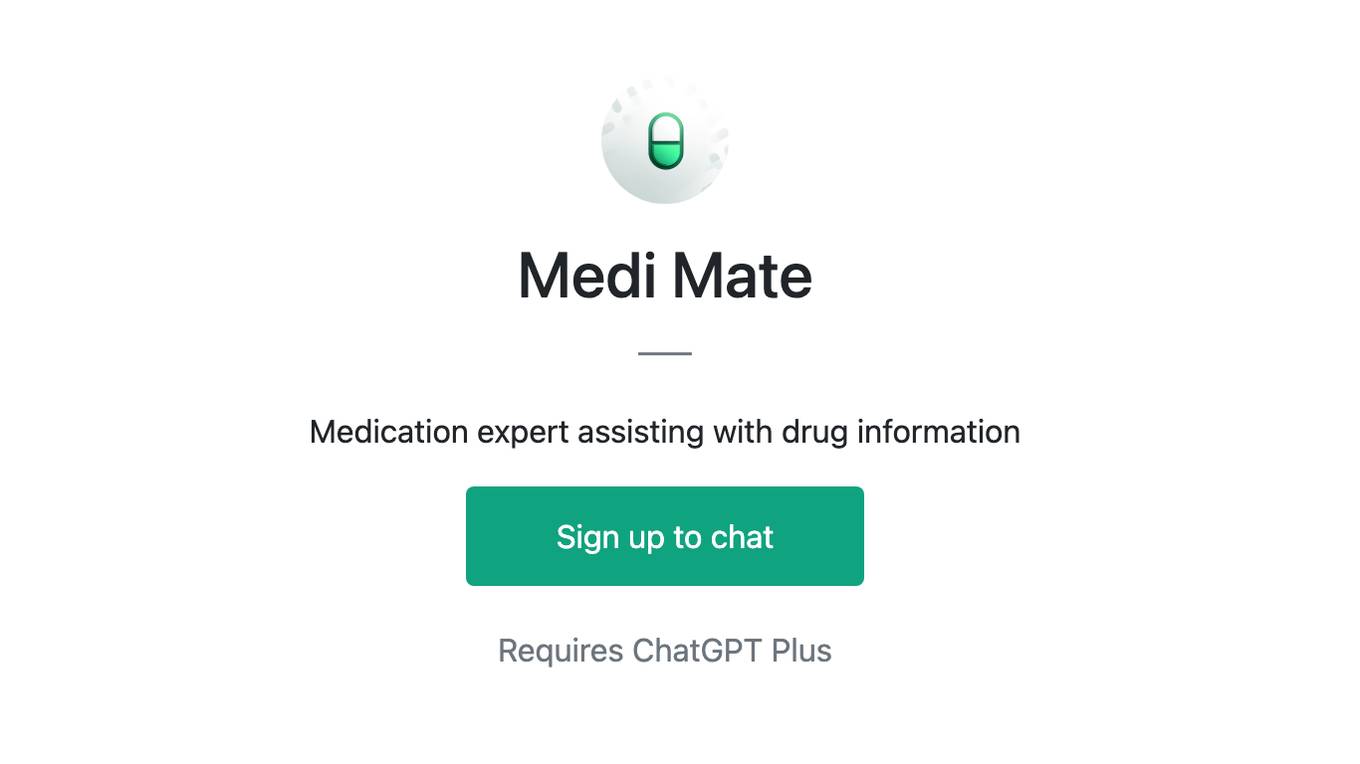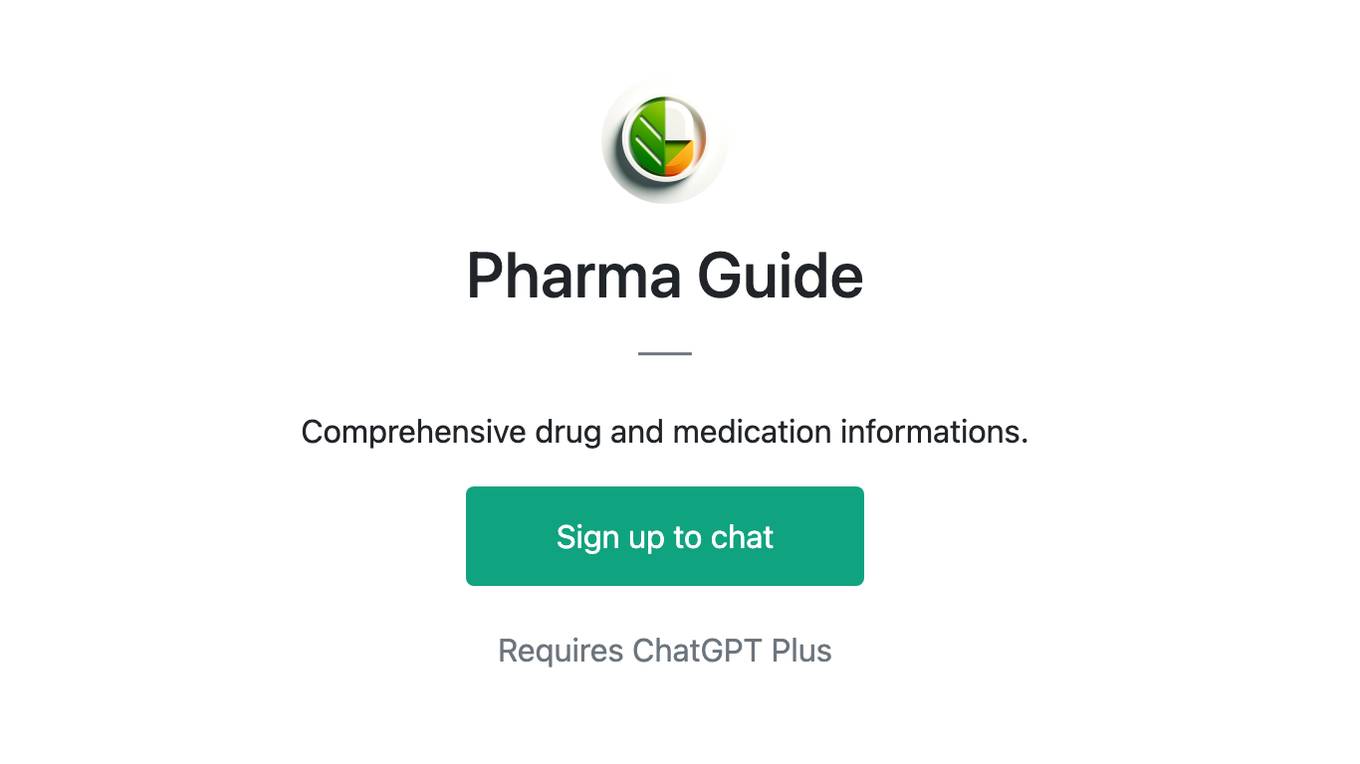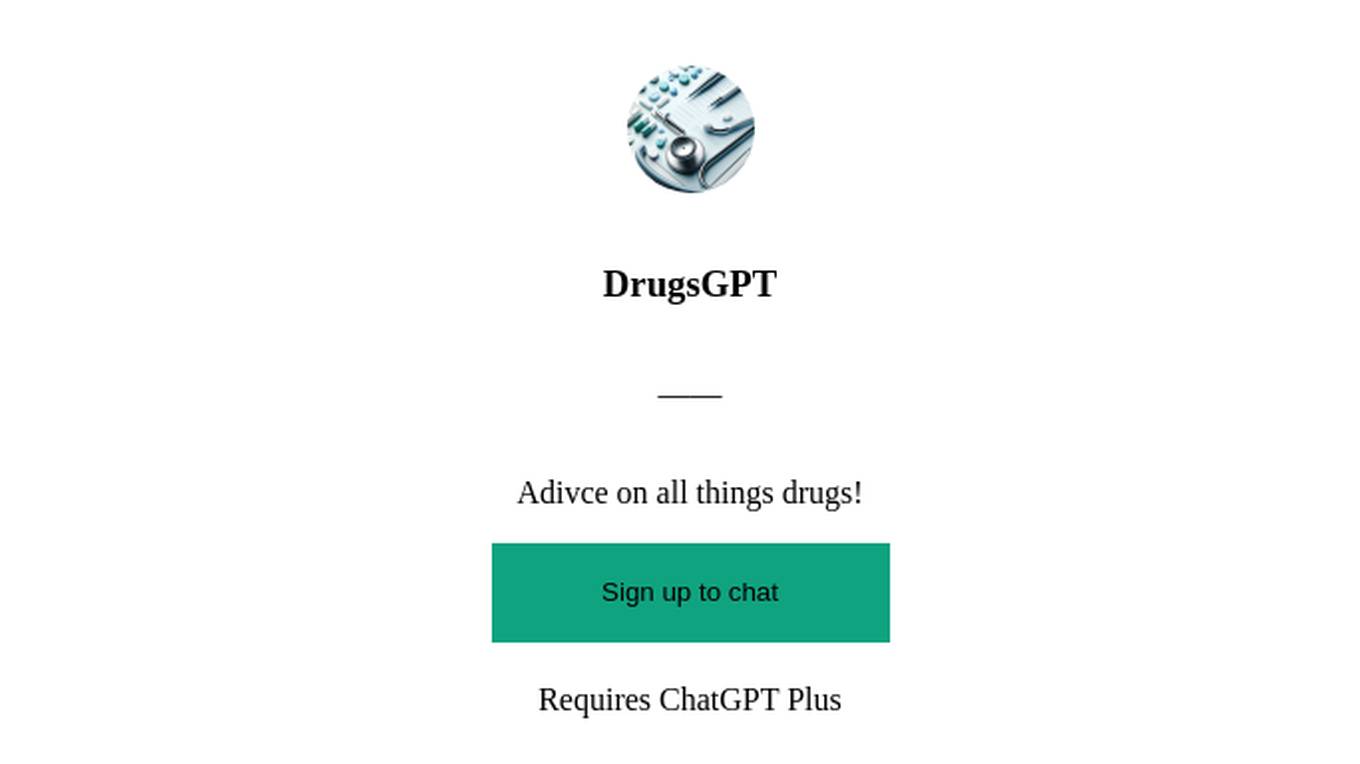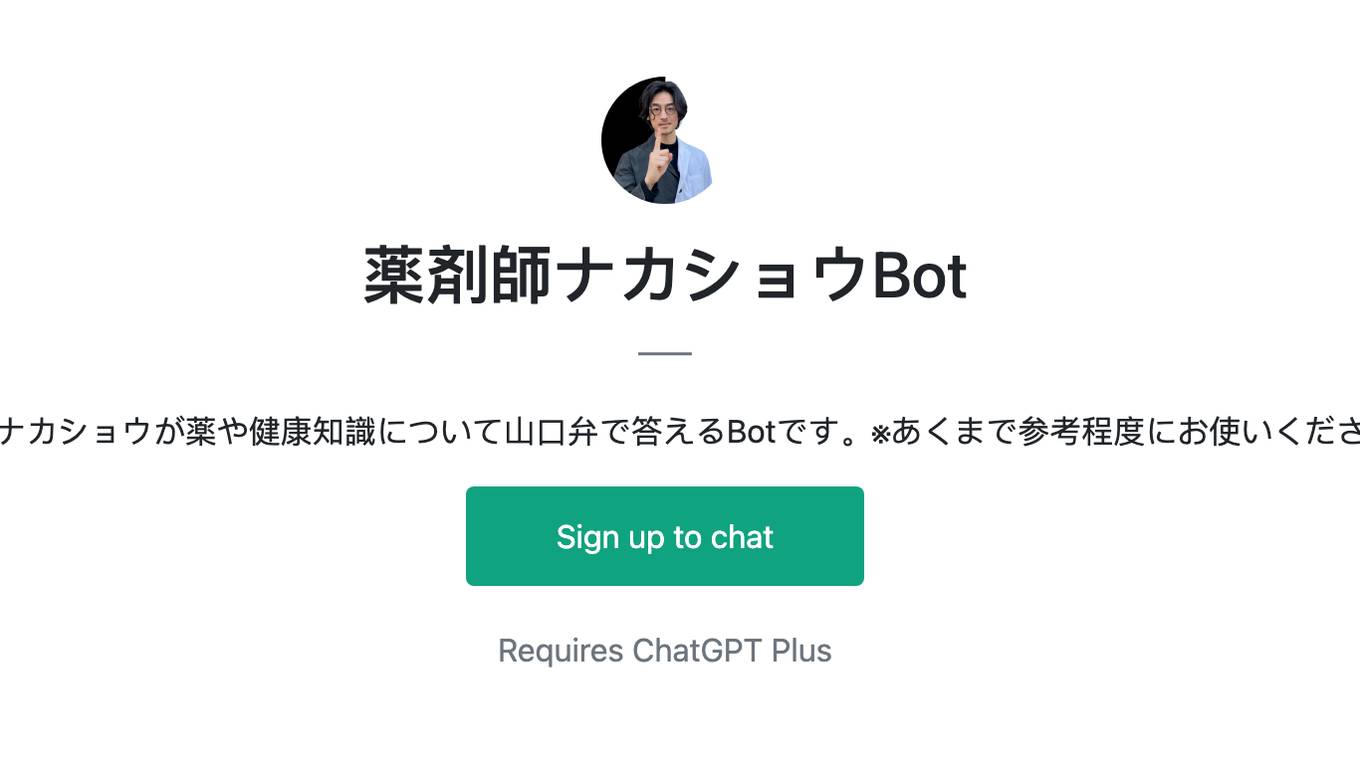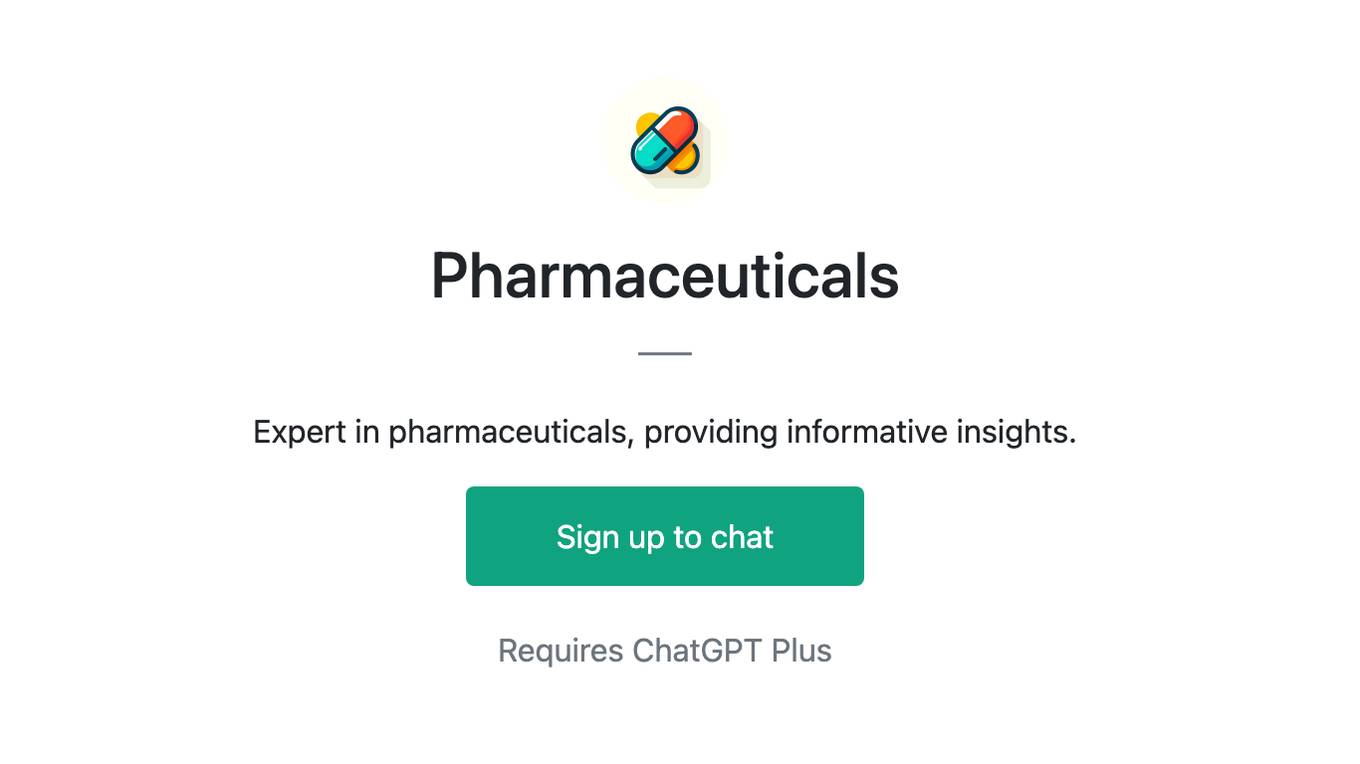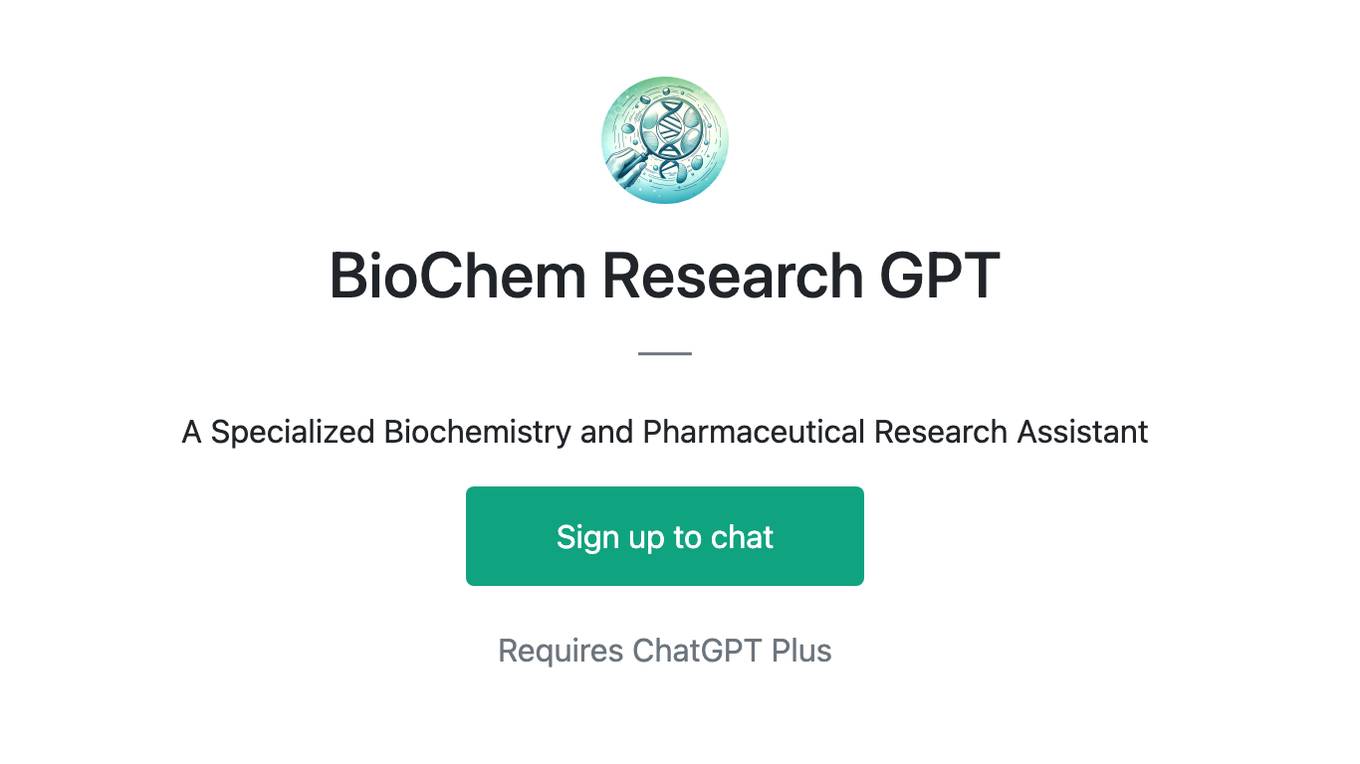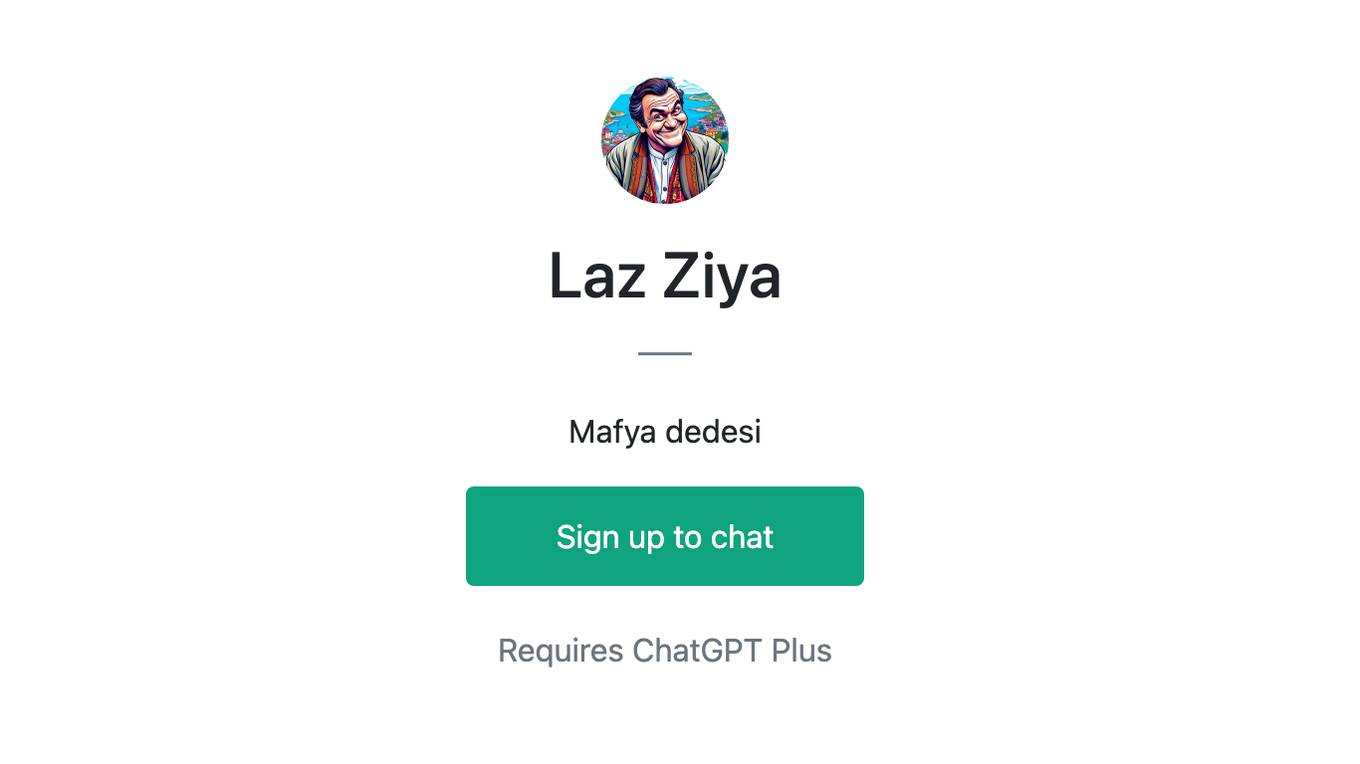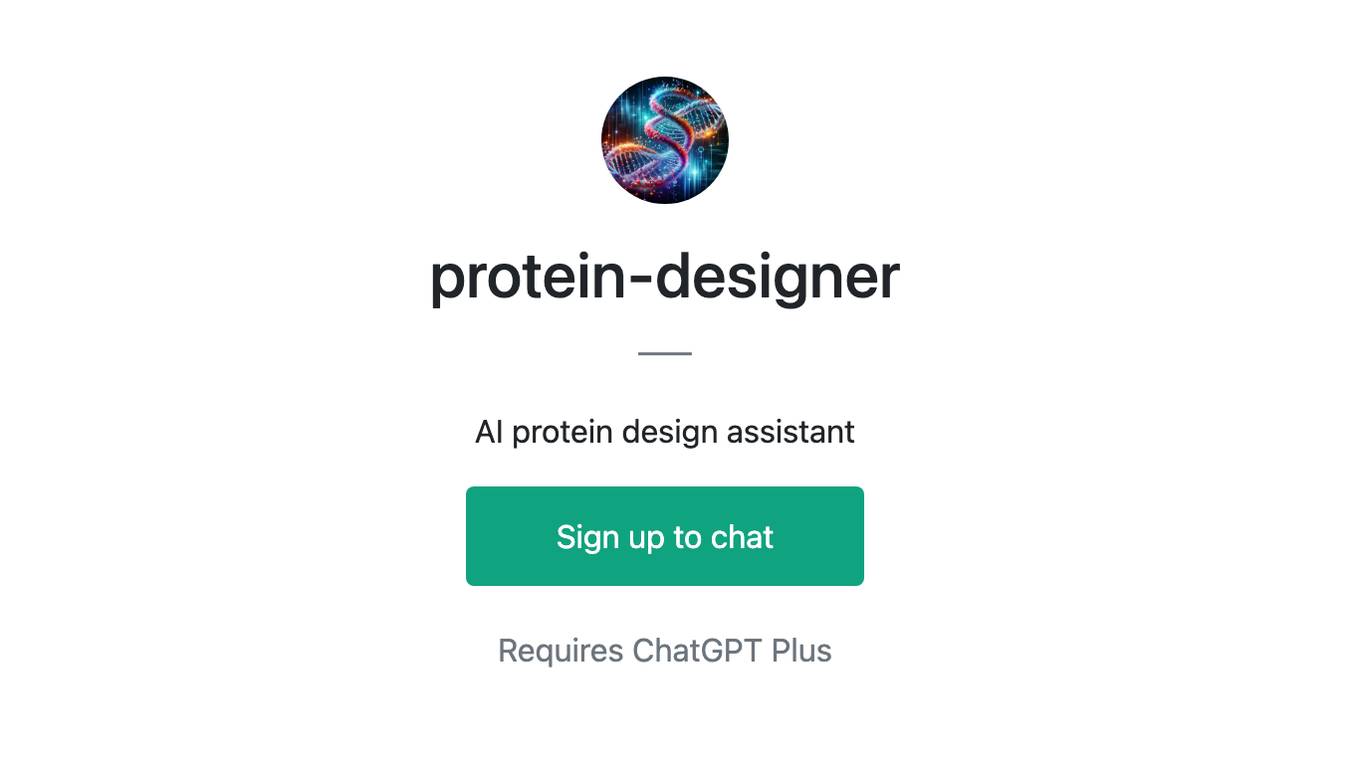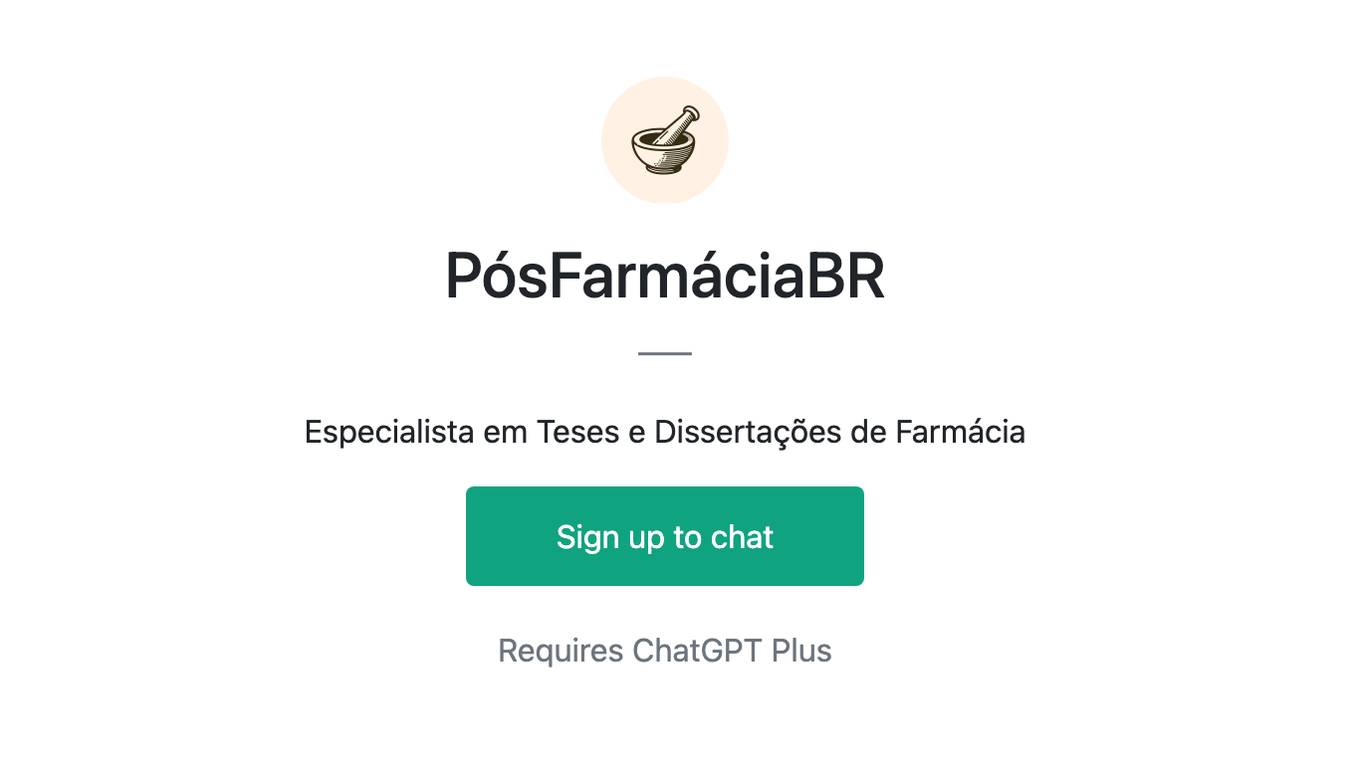Best AI tools for< Drug Safety Manager >
Infographic
20 - AI tool Sites
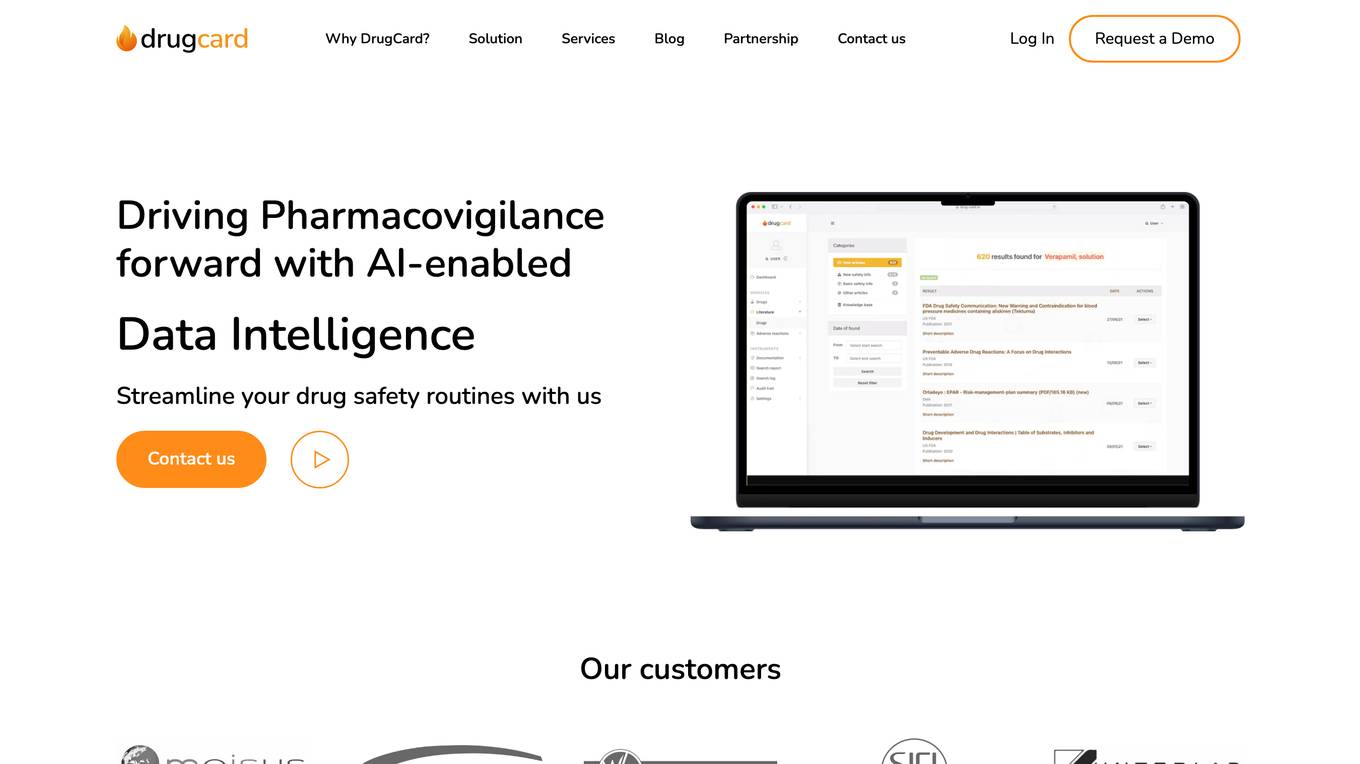
DrugCard
DrugCard is an AI-enabled Data Intelligence platform designed to streamline drug safety routines, particularly in pharmacovigilance. It offers solutions for local literature screening, catering to CROs, MAHs, and freelancers in the pharmaceutical industry. The platform supports multiple languages, covers various medical journals, and saves significant time compared to manual approaches. DrugCard aims to enhance pharmacovigilance processes by leveraging AI, automation, and traceability to meet regulatory requirements and improve screening results.
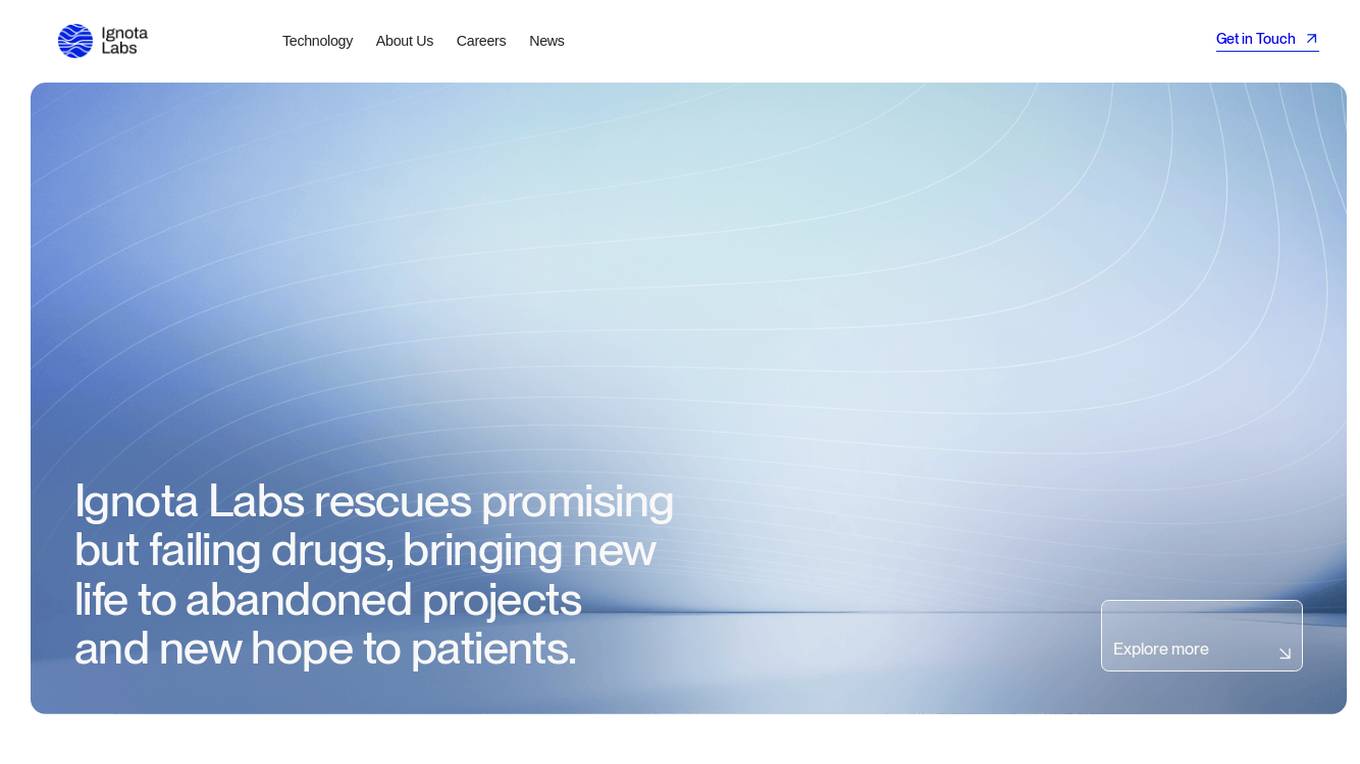
Ignota Labs
Ignota Labs is a technology company focused on rescuing failing drugs and bringing new life to abandoned projects, ultimately providing hope to patients. The company utilizes a proprietary AI model, SAFEPATH, which applies deep learning to bioinformatics and cheminformatics datasets to solve drug safety issues. Ignota Labs aims to identify promising drug targets, address safety problems in clinical trials, and accelerate the delivery of therapeutically effective drugs to patients.
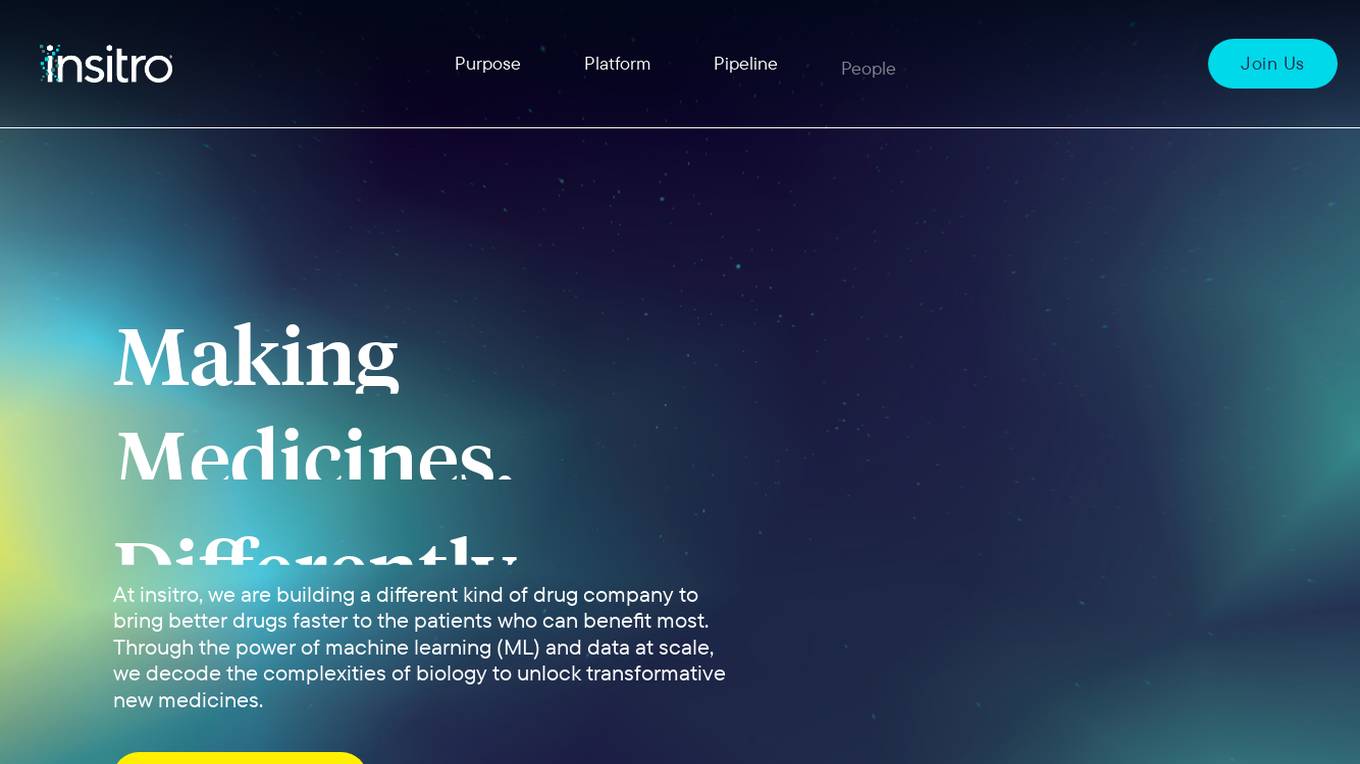
Insitro
Insitro is a drug discovery and development company that uses machine learning and data to identify and develop new medicines. The company's platform integrates in vitro cellular data produced in its labs with human clinical data to help redefine disease. Insitro's pipeline includes wholly-owned and partnered therapeutic programs in metabolism, oncology, and neuroscience.

HUAWEI Cloud Pangu Drug Molecule Model
HUAWEI Cloud Pangu is an AI tool designed for accelerating drug discovery by optimizing drug molecules. It offers features such as Molecule Search, Molecule Optimizer, and Pocket Molecule Design. Users can submit molecules for optimization and view historical optimization results. The tool is based on the MindSpore framework and has been visited over 300,000 times since August 23, 2021.
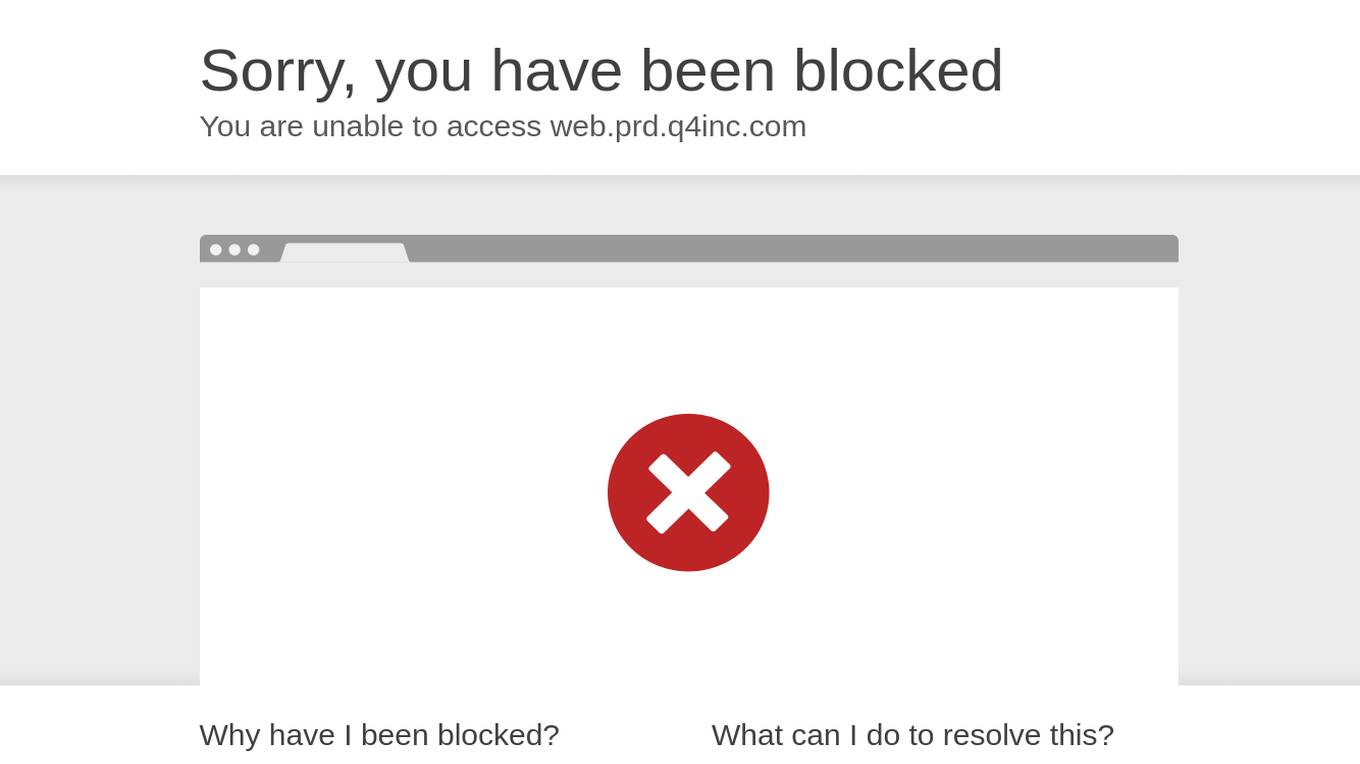
Exscientia
Exscientia is a technology-driven drug design and development company that combines precision design with integrated experimentation to create more effective medicines for patients faster. They operate at the interfaces of human ingenuity, artificial intelligence (AI), automation, and physical engineering, pioneering the use of AI in drug discovery. Exscientia aims to change the underlying economics of drug discovery by rapidly advancing the best scientific ideas into medicines for patients.
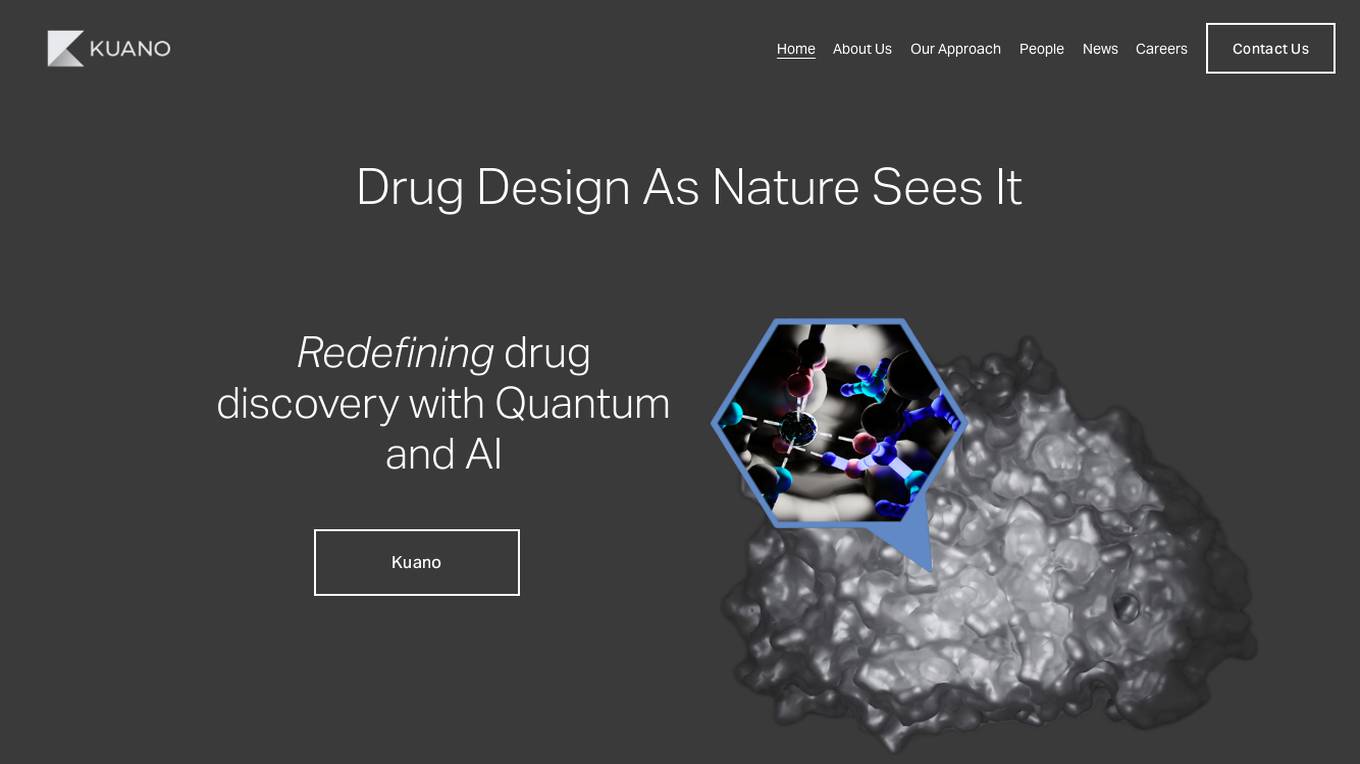
Kuano
Kuano is an AI tool that focuses on redefining drug discovery using Quantum and AI technologies. The platform offers world-class scientific expertise in quantum physics, AI, and medicinal chemistry to revolutionize the drug design process. Kuano aims to leverage cutting-edge technologies to accelerate the discovery of new drugs and improve healthcare outcomes.

Intelligencia AI
Intelligencia AI is a leading provider of AI-powered solutions for the pharmaceutical industry. Our suite of solutions helps de-risk and enhance clinical development and decision-making. We use a combination of data, AI, and machine learning to provide insights into the probability of success for drugs across multiple therapeutic areas. Our solutions are used by many of the top global pharmaceutical companies to improve their R&D productivity and make more informed decisions.
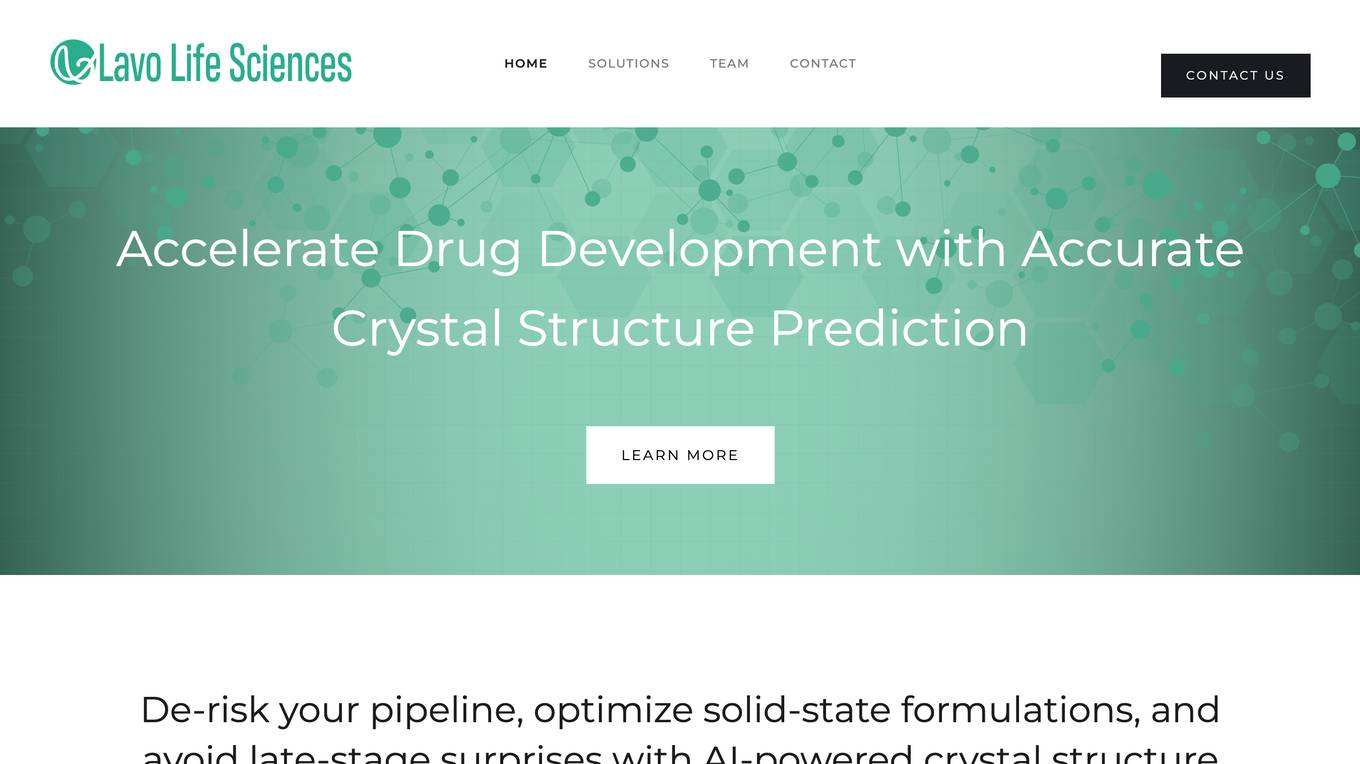
Lavo Life Sciences
Lavo Life Sciences is an AI-accelerated crystal structure prediction application that aims to accelerate drug development by providing accurate crystal structure predictions for small molecule drugs. The application helps in de-risking pipelines, optimizing solid-state formulations, and avoiding late-stage surprises through cutting-edge AI technology. Lavo Life Sciences combines expertise in AI and computational chemistry to offer fast and efficient solutions for drug development teams, enabling them to discover novel polymorphs and make informed decisions to enhance drug development processes.
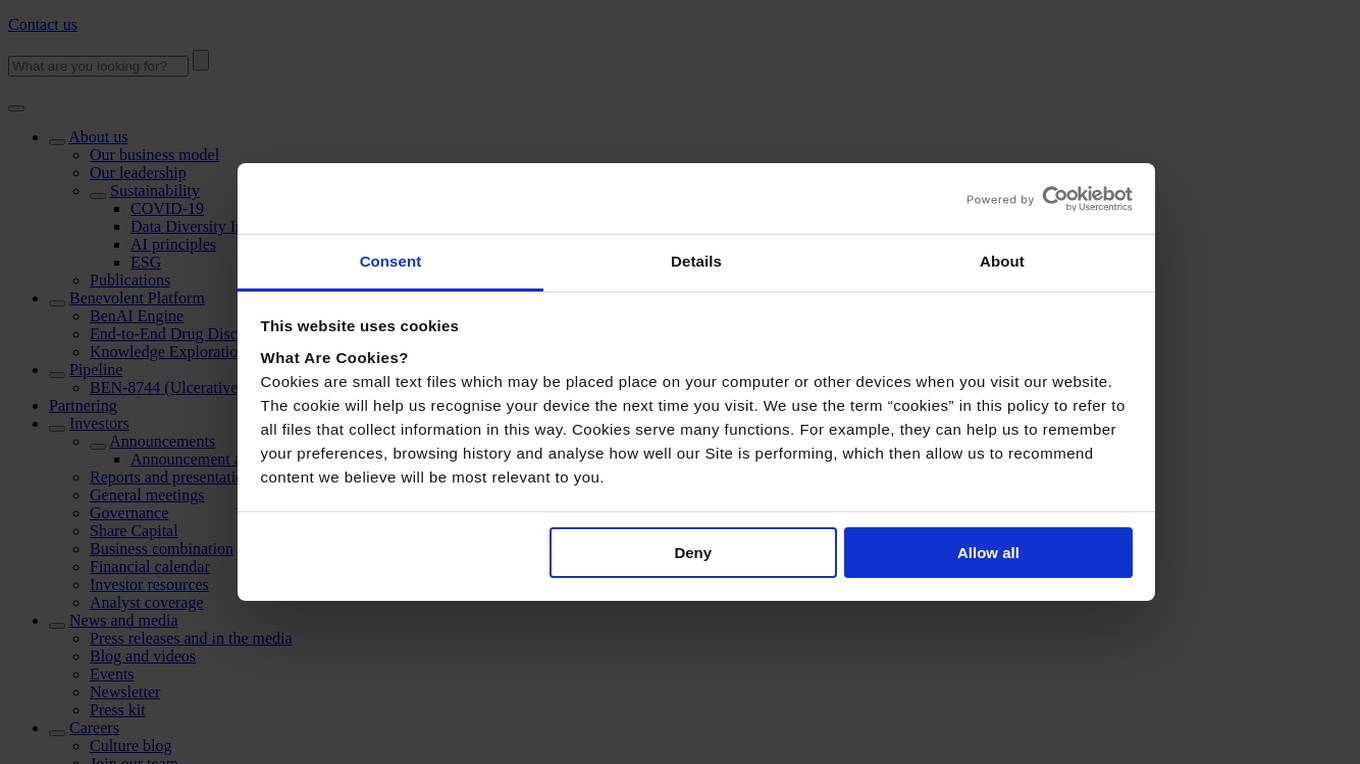
BenevolentAI
BenevolentAI is a leader in applying advanced AI to accelerate biopharma drug discovery blending science and technology with a focus on finding solutions for complex diseases. We empower both biopharmaceutical companies and our internal scientists to harness the full potential of data and AI to accelerate the next generation of scientific advances. We have built our AI-enabled drug discovery engine to drive a revolution in drug discovery. The Benevolent Platform™ unlocks the power of a vast biomedical data landscape to provide a multidimensional representation of human biology across all diseases. We believe this approach will improve the probability of clinical success, and help us deliver life-changing treatments to patients – because it matters.
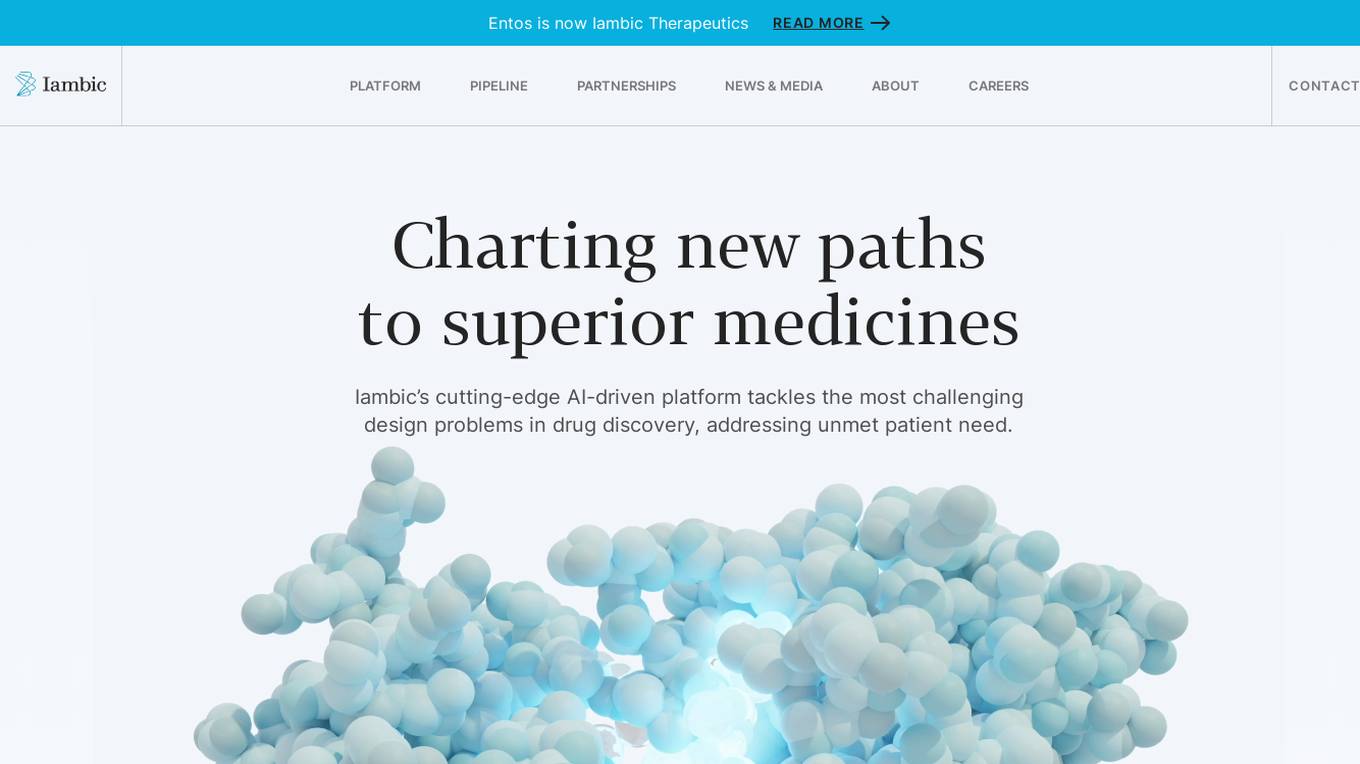
Iambic Therapeutics
Iambic Therapeutics is a cutting-edge AI-driven drug discovery platform that tackles the most challenging design problems in drug discovery, addressing unmet patient need. Its physics-based AI algorithms drive a high-throughput experimental platform, converting new molecular designs to new biological insights each week. Iambic's platform optimizes target product profiles, exploring multiple profiles in parallel to ensure that molecules are designed to solve the right problems in disease biology. It also optimizes drug candidates, deeply exploring chemical space to reveal novel mechanisms of action and deliver diverse high-quality leads.
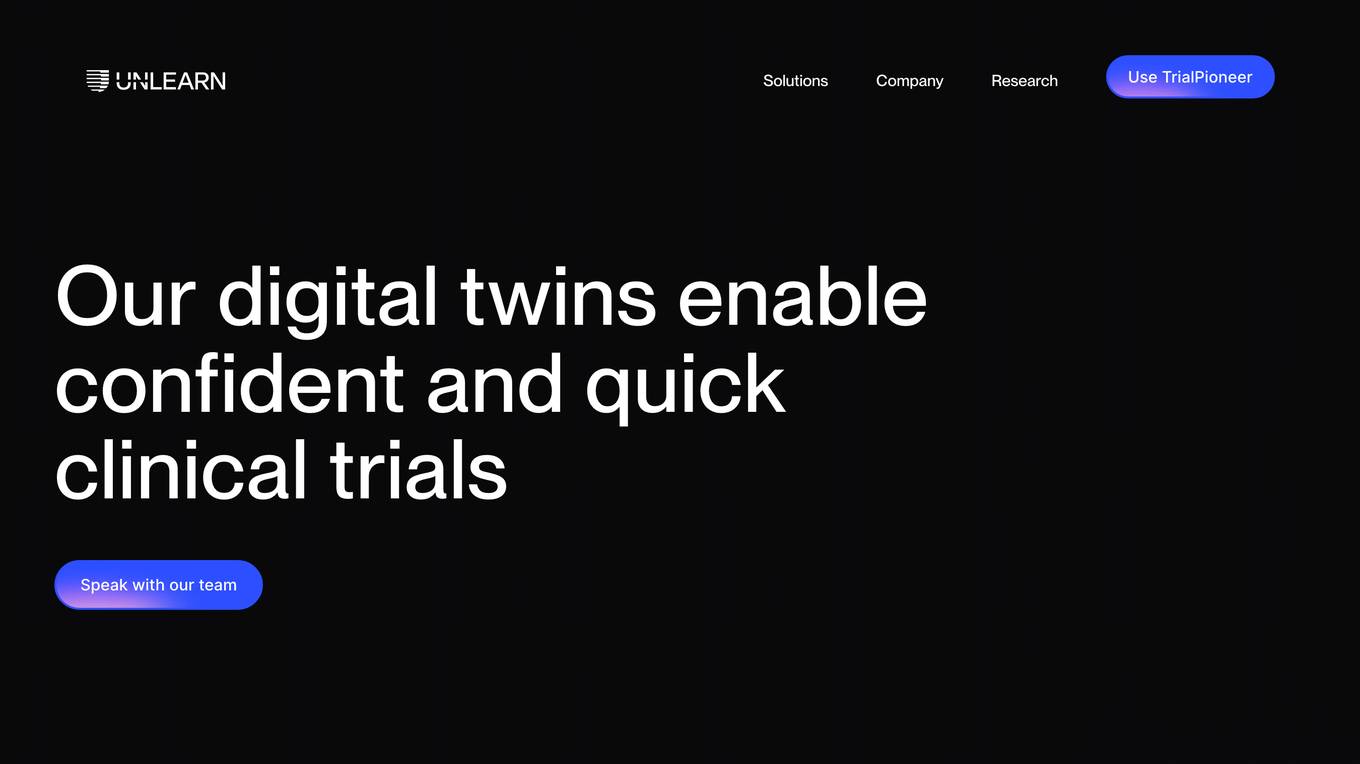
Unlearn Platform
The Unlearn Platform is an AI-powered platform that streamlines clinical trials by creating digital twins of patients. It offers solutions to accelerate trial timelines, enhance decision-making with digital twins, and identify sensitive clinical outcomes. The platform provides unparalleled precision in predicting clinical outcomes and is designed to put the power of AI in the hands of users. Unlearn.ai, Inc. focuses on accelerating clinical development in various medical fields through innovative AI technologies.
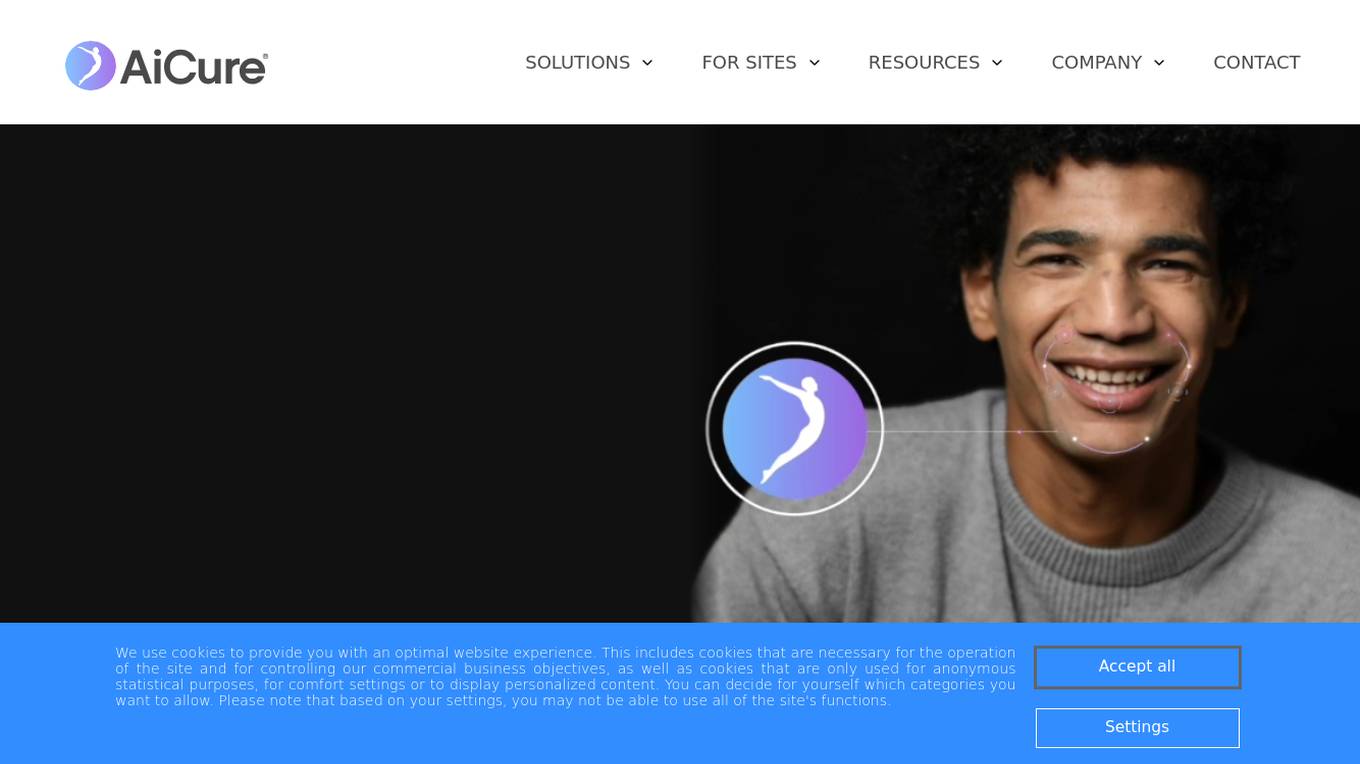
AiCure
AiCure provides a patient-centric eClinical trial management platform that enhances drug development through improved medication adherence rates, more powerful analysis and prediction of treatment response using digital biomarkers, and reduced clinical tech burden. AiCure's solutions support traditional, decentralized, or hybrid trials and offer flexibility to meet the needs of various research designs.
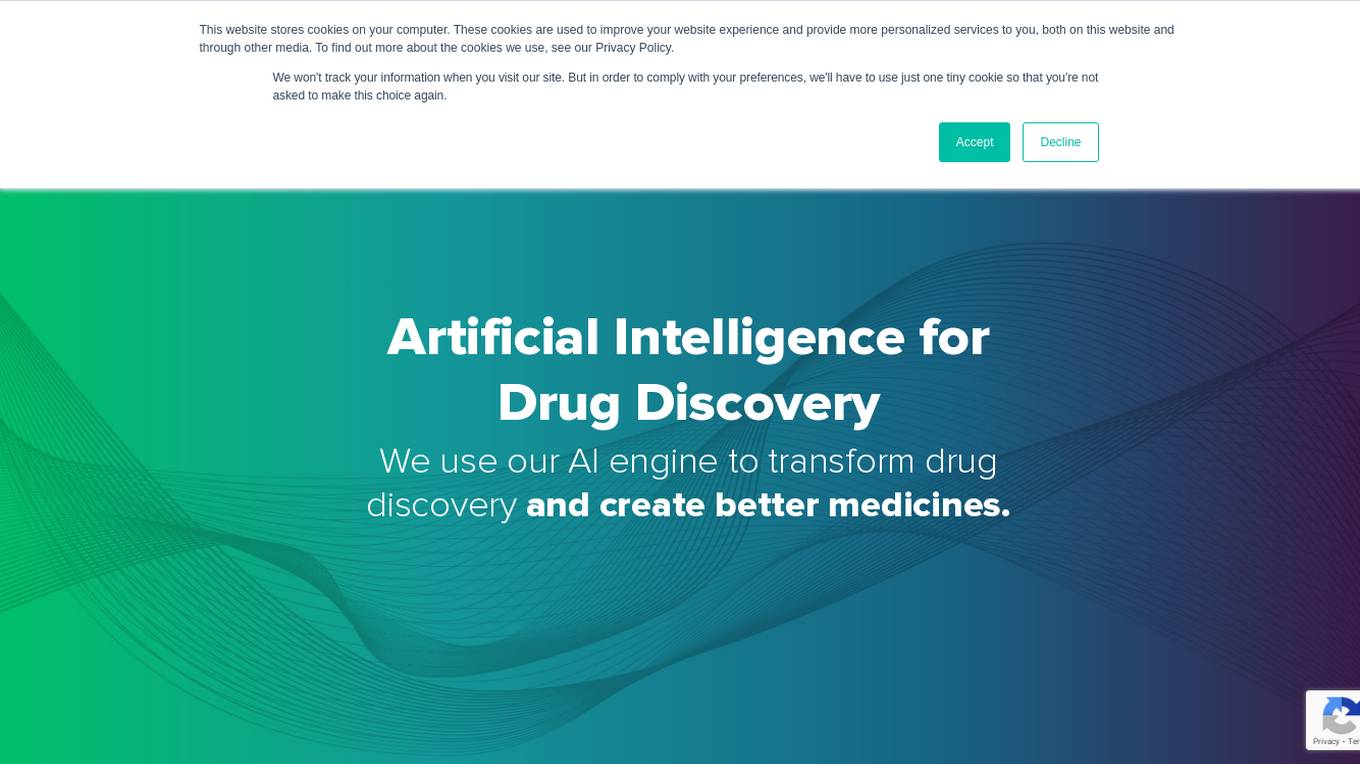
Atomwise
Atomwise is an artificial intelligence (AI)-driven drug discovery company that uses machine learning to discover and develop new small molecule medicines. The company's AI engine combines the power of convolutional neural networks with massive chemical libraries to identify new drug candidates. Atomwise has a wholly owned pipeline of drug discovery programs and also partners with other pharmaceutical companies to co-develop drugs. The company's investors include prominent venture capital firms and pharmaceutical companies.
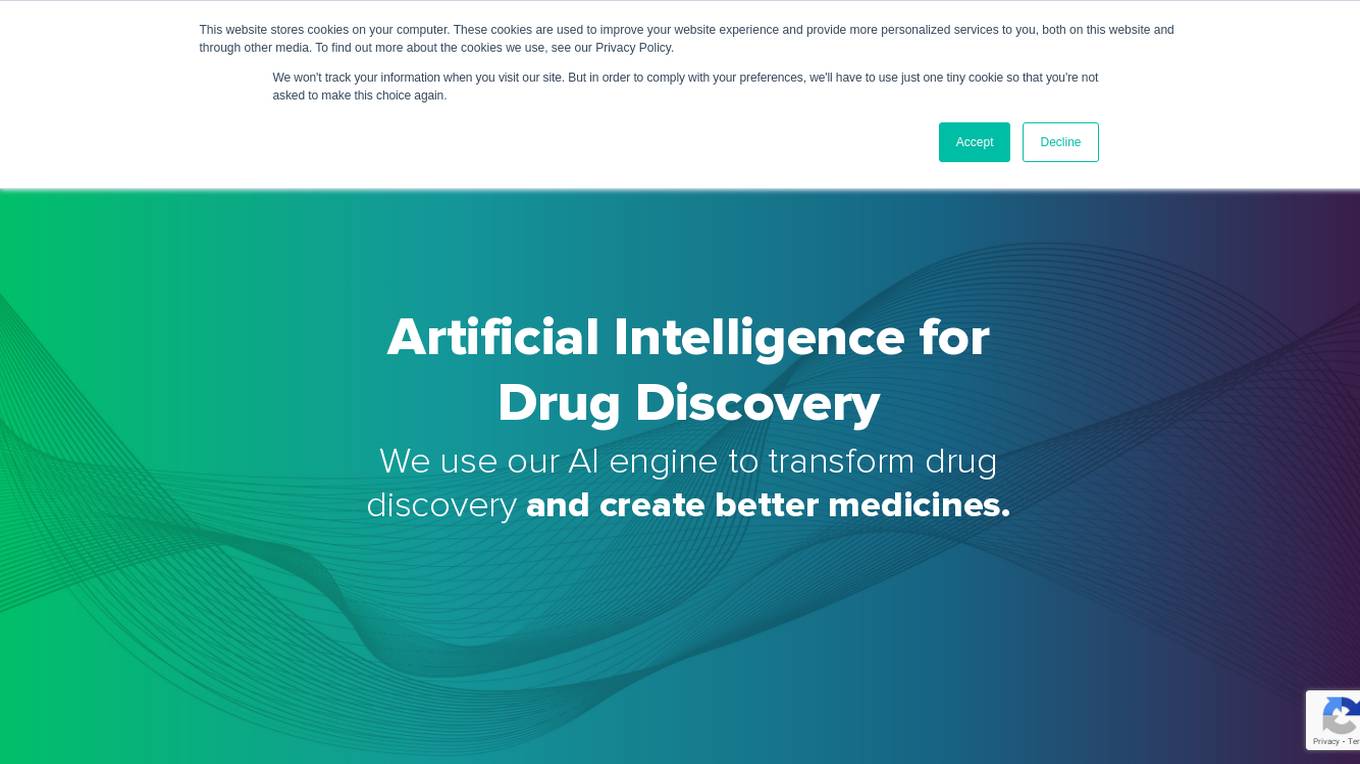
Atomwise
Atomwise is an AI-powered drug discovery company that uses machine learning to identify new small molecule medicines. The company's platform combines the power of convolutional neural networks with massive chemical libraries to discover new drug candidates. Atomwise has a portfolio of wholly owned and co-developed pipeline assets, and is backed by prominent investors.

XtalPi
XtalPi is a world-leading technology company driven by artificial intelligence (AI) and robotics to innovate in the fields of life sciences and new materials. Founded in 2015 at the Massachusetts Institute of Technology (MIT), the company is committed to realizing digital and intelligent innovation in the fields of life sciences and new materials. Based on cutting-edge technologies and capabilities such as quantum physics, artificial intelligence, cloud computing, and large-scale experimental robot clusters, the company provides innovative technologies, services, and products for global industries such as biomedicine, chemicals, new energy, and new materials.
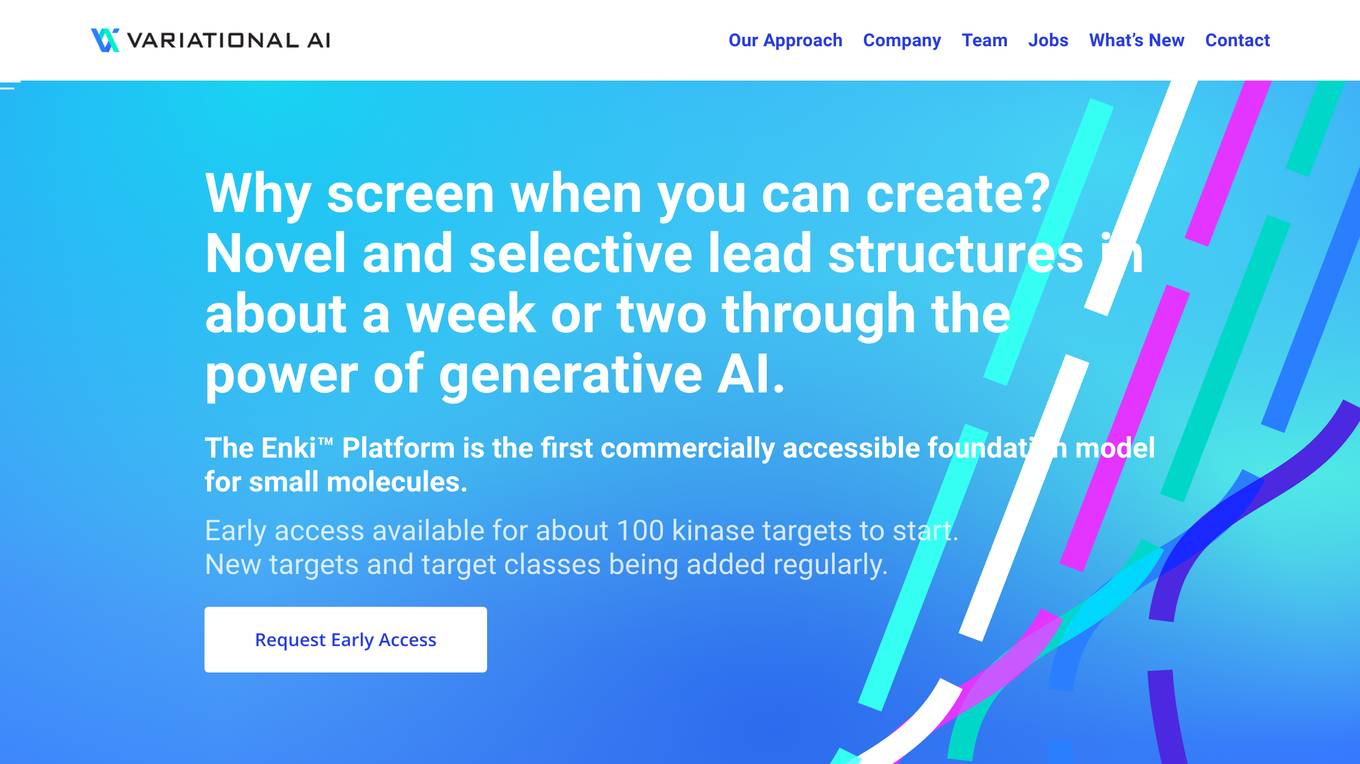
Variational AI
Variational AI is a company that uses generative AI to discover novel drug-like small molecules with optimized properties for defined targets. Their platform, Enki™, is the first commercially accessible foundation model for small molecules. It is designed to make generating novel molecule structures easy, with no data required. Users simply define their target product profile (TPP) and Enki does the rest. Enki is an ensemble of generative algorithms trained on decades worth of experimental data with proven results. The company was founded in September 2019 and is based in Vancouver, BC, Canada.

Allchemy
Allchemy is a resource-aware AI platform for drug discovery. It combines state-of-the-art computational synthesis with AI algorithms to predict molecular properties. Within minutes, Allchemy creates thousands of synthesizable lead candidates meeting user-defined profiles of drug-likeness, affinity towards specific proteins, toxicity, and a range of other physical-chemical measures. Allchemy encompasses the entire resource-to-drug design process and has been used in academic, corporate and classified environments worldwide to: Design synthesizable leads targeting specific proteins Evolve scaffolds similar to desired drugs Design “circular” drug syntheses from renewable materials Interface with and instruct automated synthesis platforms and optimize pilot-scale processes Operate “iterative synthesis” schemes Predict side reactions and create forensic “synthetic signatures” of hazardous/toxic molecules Design synthetic degradation and recovery cycles for various types of feedstocks and functional target molecules
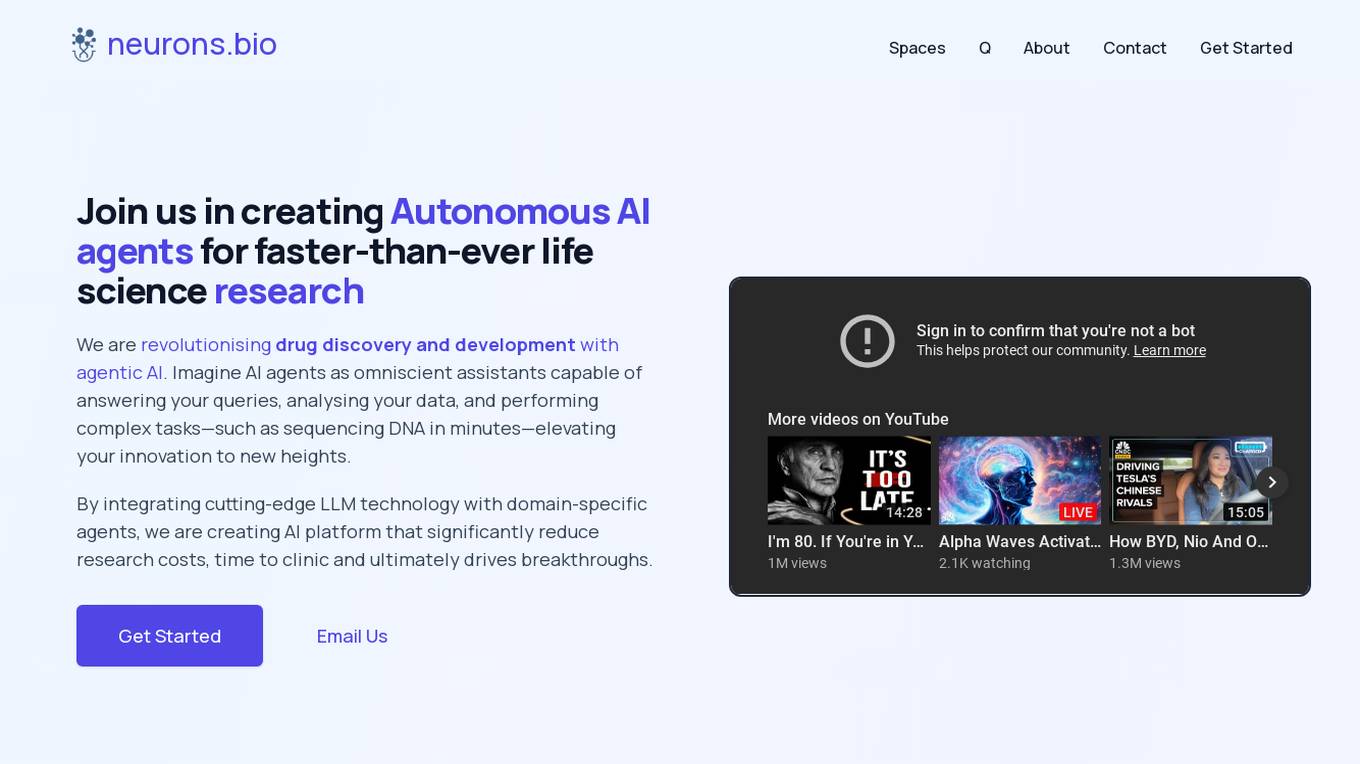
neurons.bio
neurons.bio is an AI application that offers a unique collection of over 100 AI agents designed for drug development, medicine, and life science research. These agents perform specific tasks efficiently, retrieve data from various sources, and provide insights to accelerate research processes. The platform aims to revolutionize drug discovery and development by integrating cutting-edge LLM technology with domain-specific agents, reducing research costs and time to clinic.
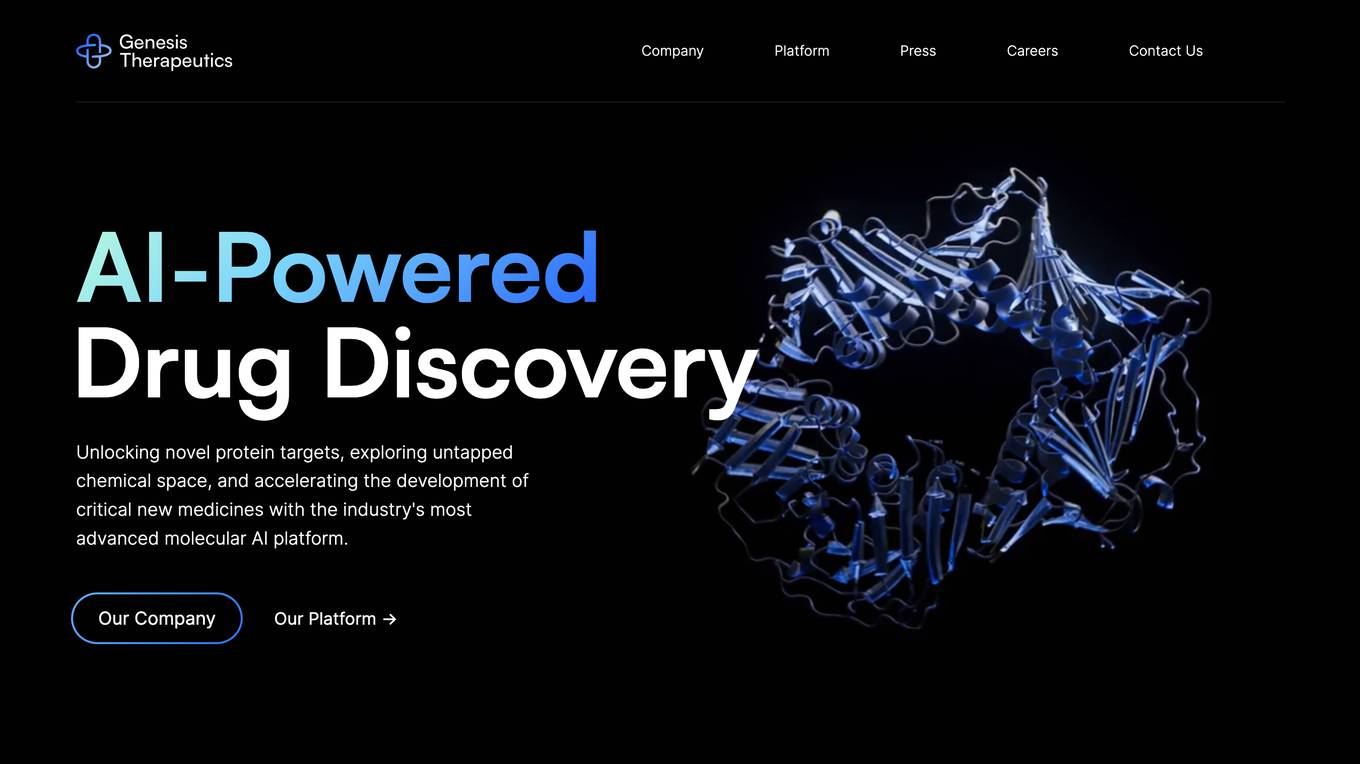
Genesis Therapeutics
Genesis Therapeutics is a cutting-edge platform that leverages molecular AI technology to discover and develop innovative medicines with exceptional potency and selectivity. The platform, known as GEMS (Generative AI for Drug Discovery), combines AI and physics research to identify drug candidates against challenging targets at an accelerated pace. The company's approach involves designing highly potent and selective drugs for chemically complex targets, driven by a team of collaborative minds across AI and biotech disciplines. Genesis Therapeutics is dedicated to advancing breakthrough medicines and bringing new hope to patients through its unique blend of technology and expertise.
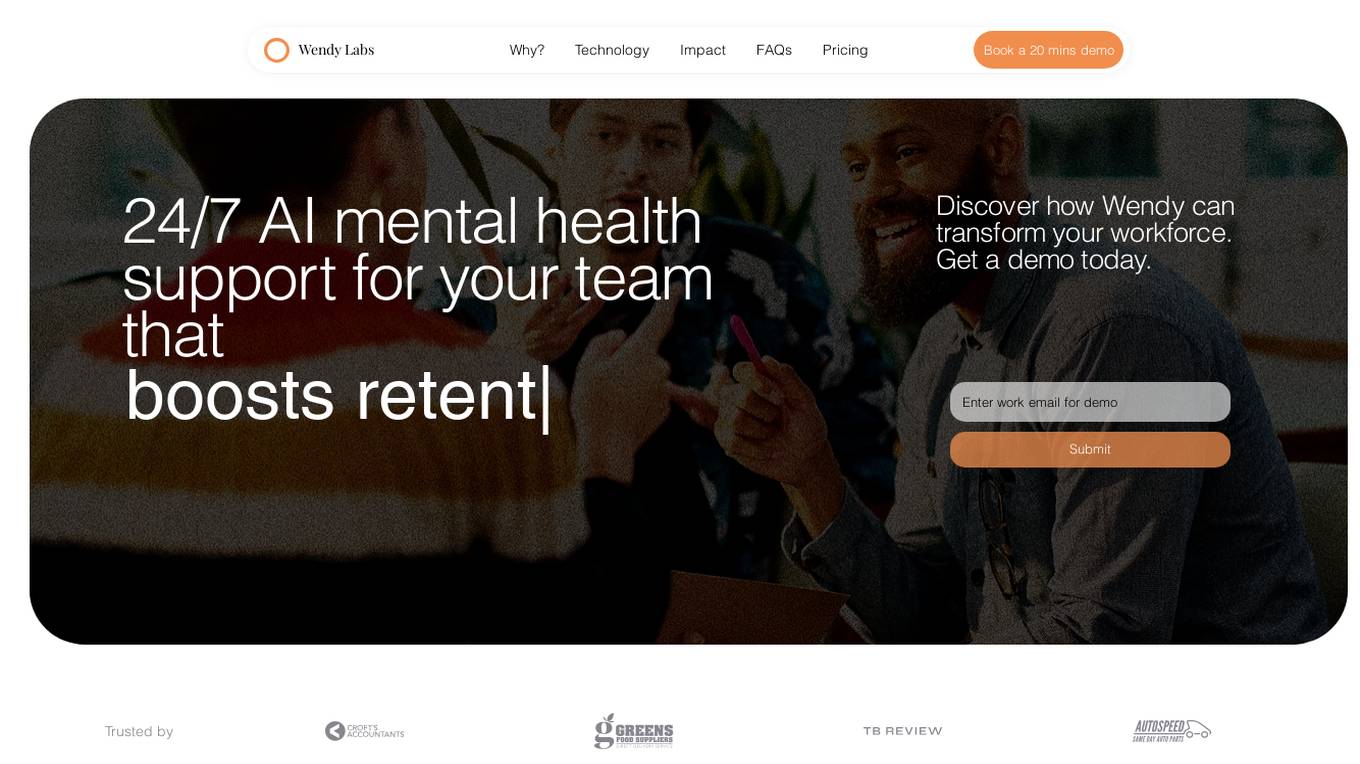
Wendy Labs
Wendy Labs is an AI application that provides on-call AI Therapist services for teams to support mental health and well-being in the workplace. The application offers 24/7 mental health support, personalized assistance, and measurable insights to empower employees and improve team retention. Wendy aims to eliminate stigma associated with seeking mental health support and offers a cost-effective and scalable solution for organizations to address mental health issues effectively.
20 - Open Source Tools
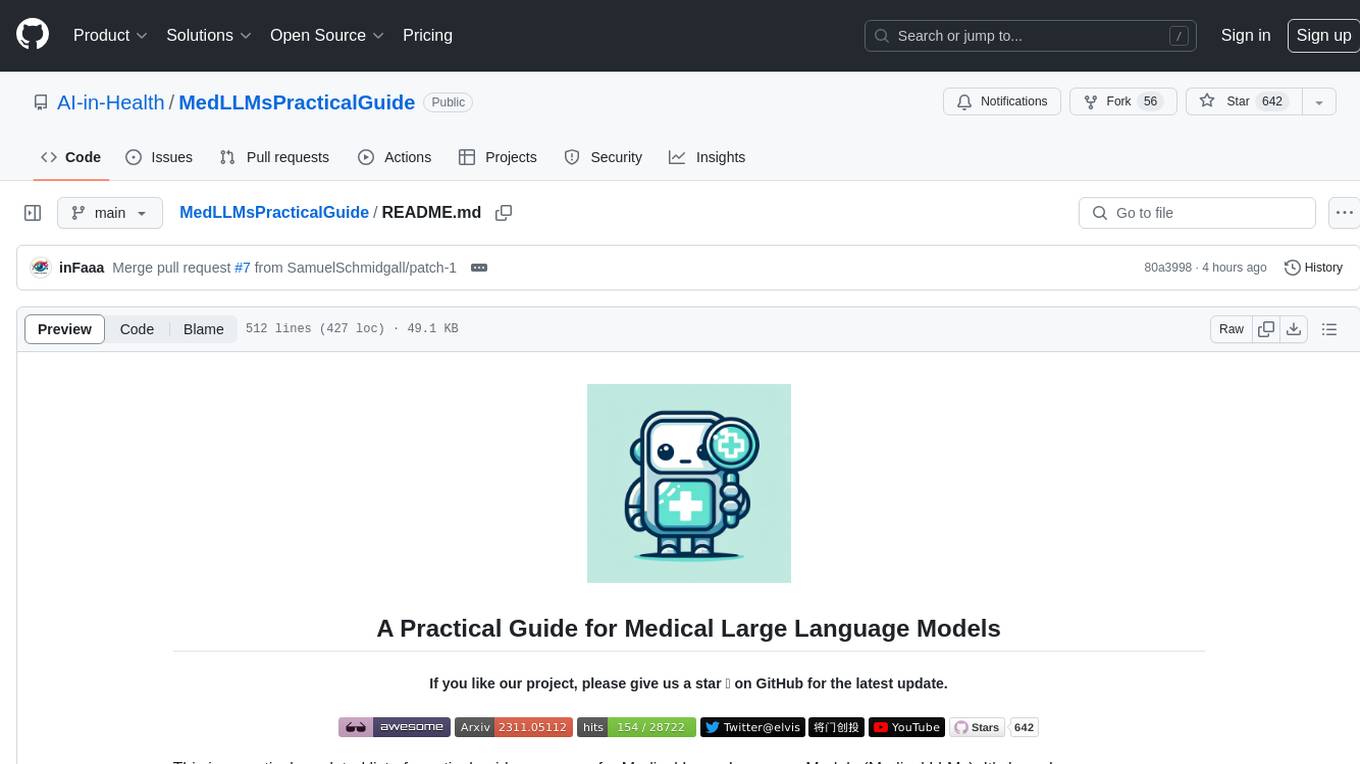
MedLLMsPracticalGuide
This repository serves as a practical guide for Medical Large Language Models (Medical LLMs) and provides resources, surveys, and tools for building, fine-tuning, and utilizing LLMs in the medical domain. It covers a wide range of topics including pre-training, fine-tuning, downstream biomedical tasks, clinical applications, challenges, future directions, and more. The repository aims to provide insights into the opportunities and challenges of LLMs in medicine and serve as a practical resource for constructing effective medical LLMs.
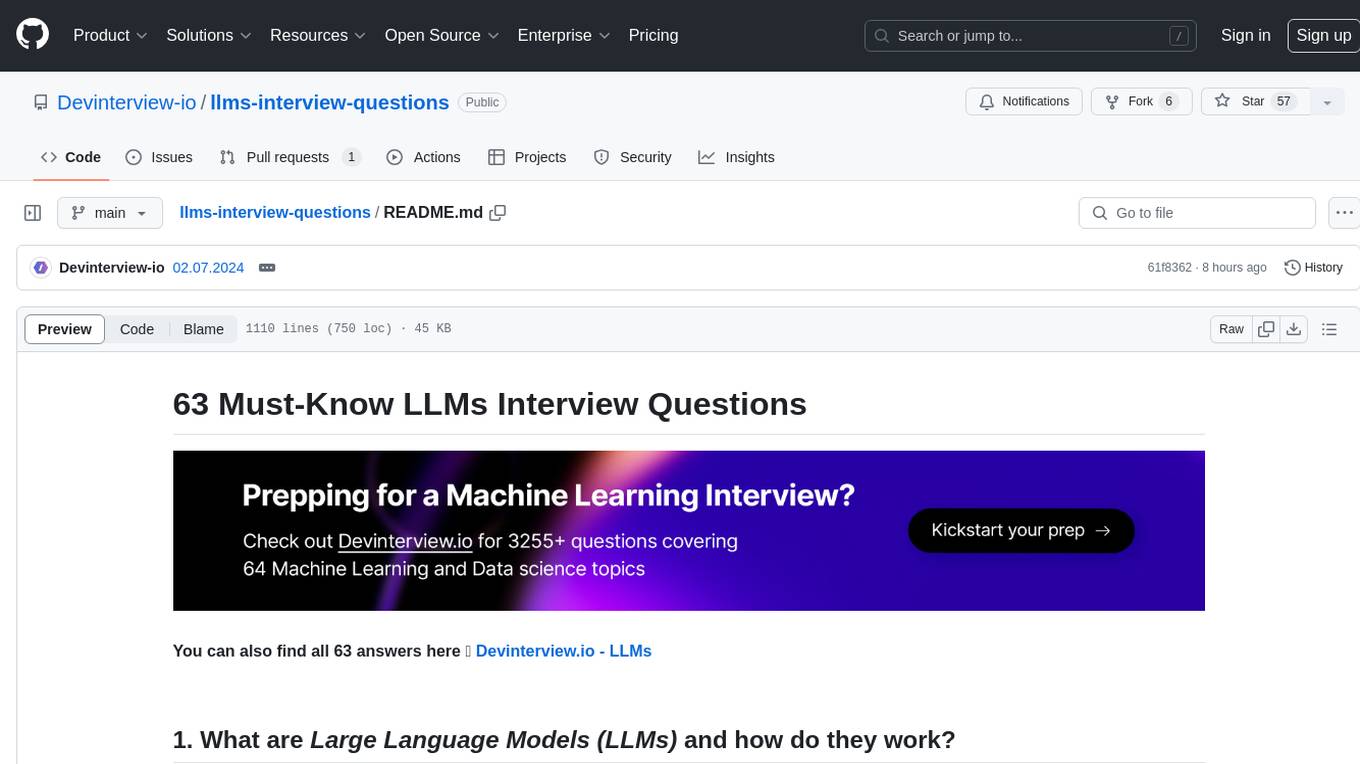
llms-interview-questions
This repository contains a comprehensive collection of 63 must-know Large Language Models (LLMs) interview questions. It covers topics such as the architecture of LLMs, transformer models, attention mechanisms, training processes, encoder-decoder frameworks, differences between LLMs and traditional statistical language models, handling context and long-term dependencies, transformers for parallelization, applications of LLMs, sentiment analysis, language translation, conversation AI, chatbots, and more. The readme provides detailed explanations, code examples, and insights into utilizing LLMs for various tasks.
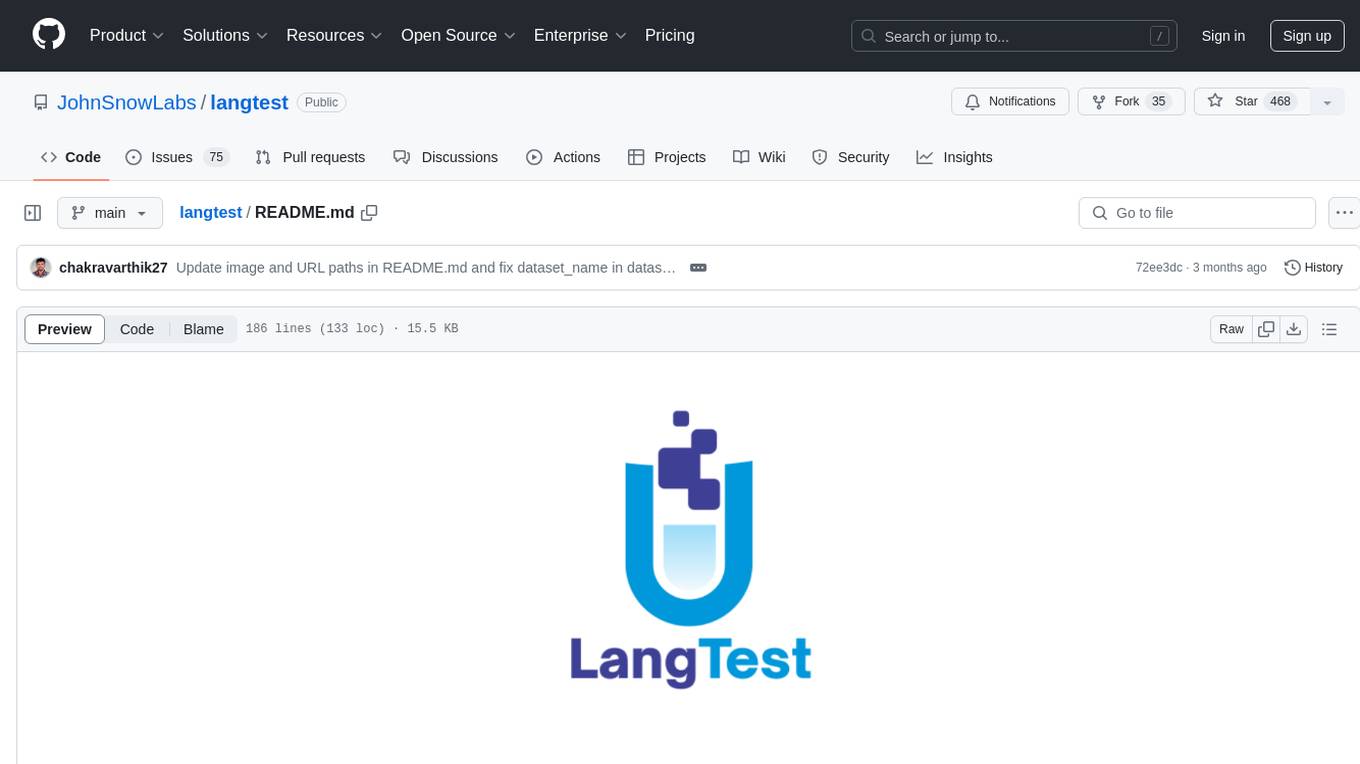
langtest
LangTest is a comprehensive evaluation library for custom LLM and NLP models. It aims to deliver safe and effective language models by providing tools to test model quality, augment training data, and support popular NLP frameworks. LangTest comes with benchmark datasets to challenge and enhance language models, ensuring peak performance in various linguistic tasks. The tool offers more than 60 distinct types of tests with just one line of code, covering aspects like robustness, bias, representation, fairness, and accuracy. It supports testing LLMS for question answering, toxicity, clinical tests, legal support, factuality, sycophancy, and summarization.
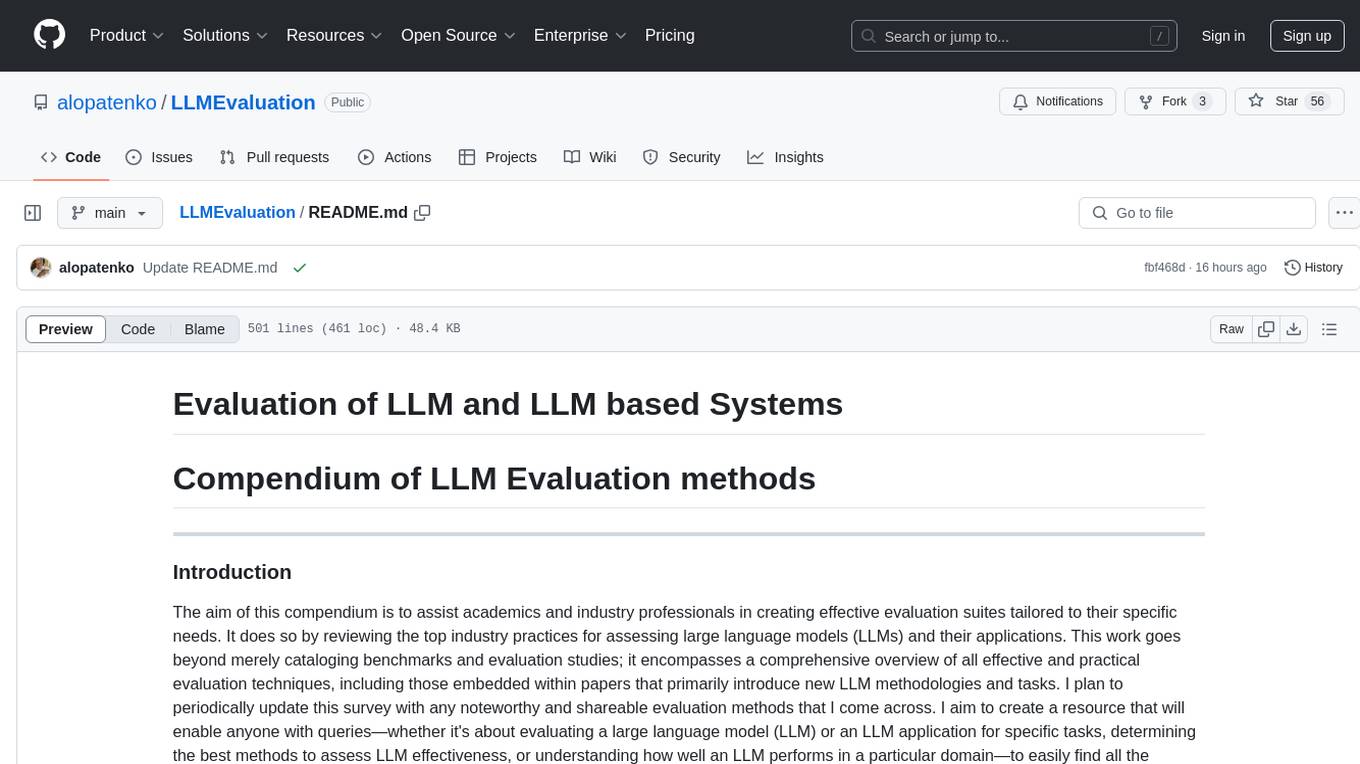
LLMEvaluation
The LLMEvaluation repository is a comprehensive compendium of evaluation methods for Large Language Models (LLMs) and LLM-based systems. It aims to assist academics and industry professionals in creating effective evaluation suites tailored to their specific needs by reviewing industry practices for assessing LLMs and their applications. The repository covers a wide range of evaluation techniques, benchmarks, and studies related to LLMs, including areas such as embeddings, question answering, multi-turn dialogues, reasoning, multi-lingual tasks, ethical AI, biases, safe AI, code generation, summarization, software performance, agent LLM architectures, long text generation, graph understanding, and various unclassified tasks. It also includes evaluations for LLM systems in conversational systems, copilots, search and recommendation engines, task utility, and verticals like healthcare, law, science, financial, and others. The repository provides a wealth of resources for evaluating and understanding the capabilities of LLMs in different domains.
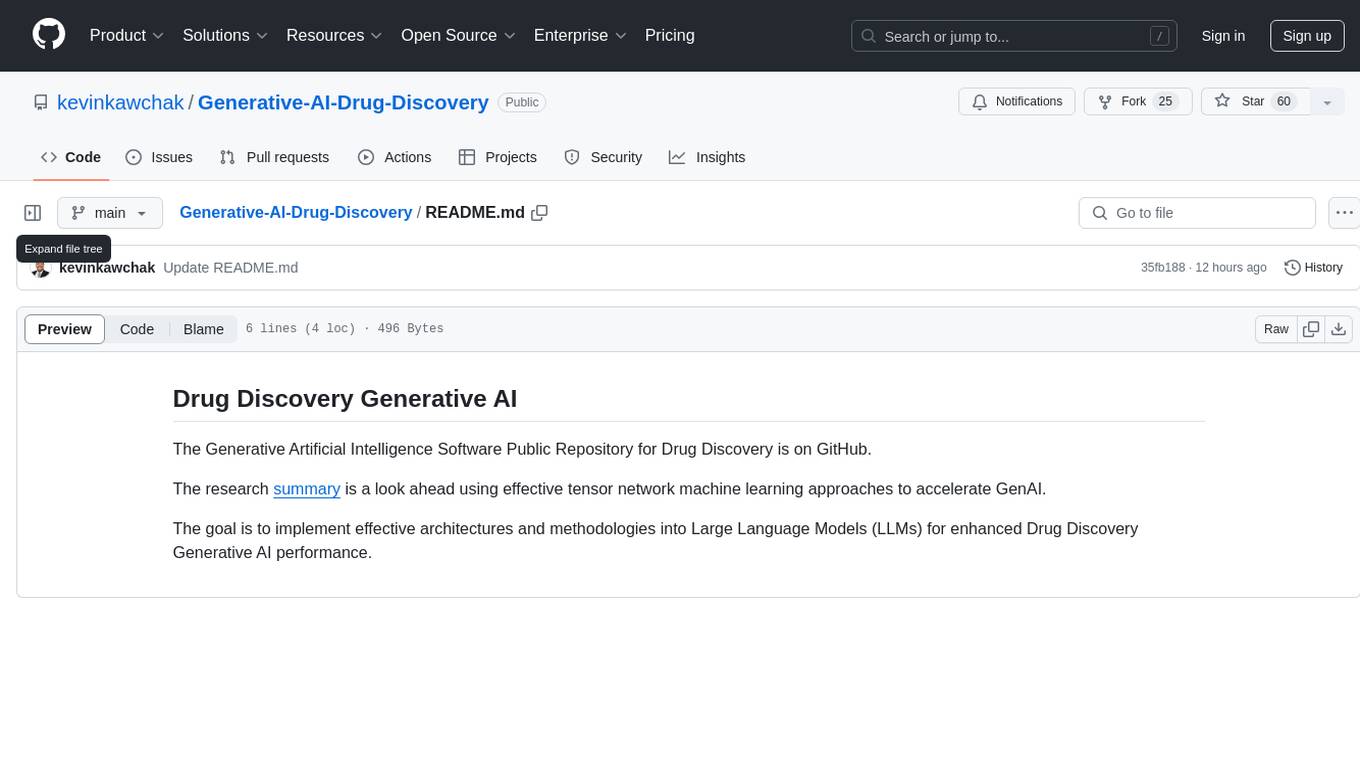
Generative-AI-Drug-Discovery
Generative-AI-Drug-Discovery is a public repository on GitHub focused on using tensor network machine learning approaches to accelerate GenAI for drug discovery. The repository aims to implement effective architectures and methodologies into Large Language Models (LLMs) to enhance Drug Discovery Generative AI performance.
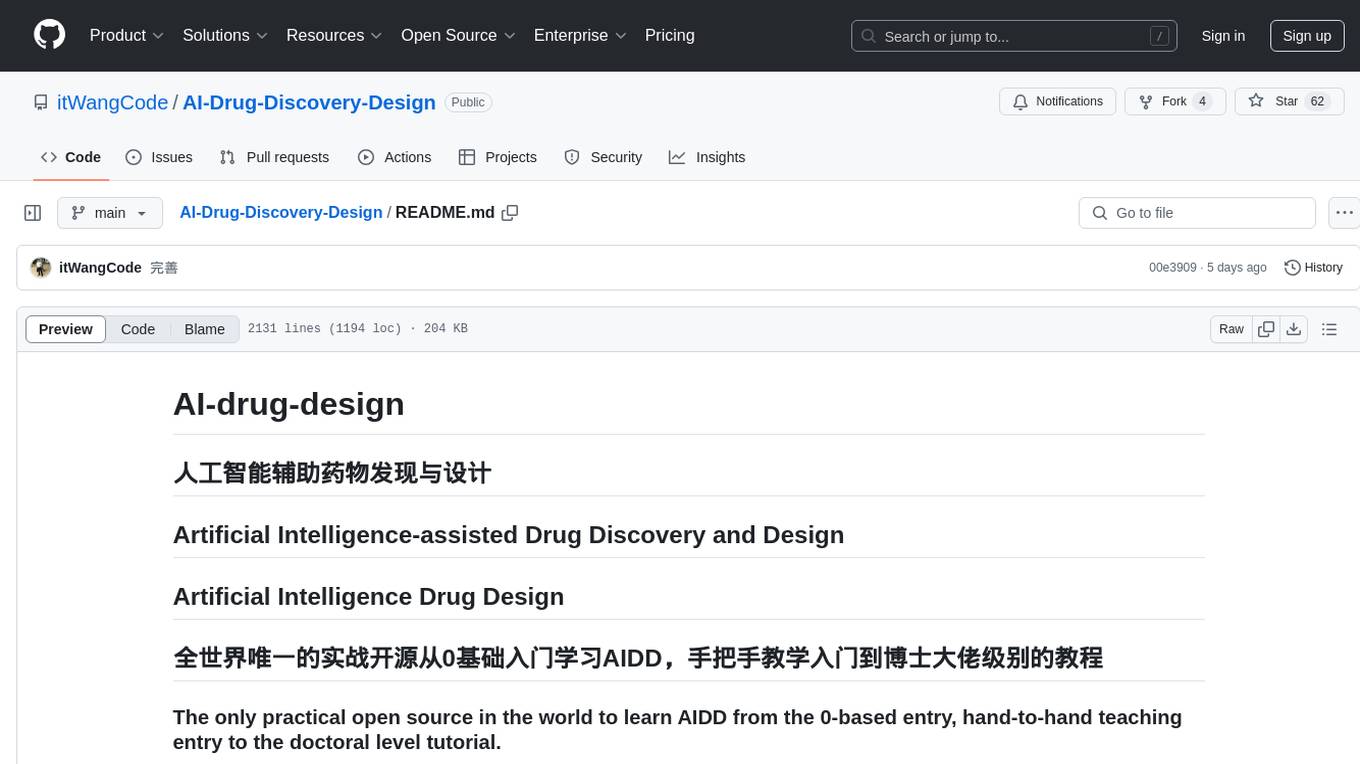
AI-Drug-Discovery-Design
AI-Drug-Discovery-Design is a repository focused on Artificial Intelligence-assisted Drug Discovery and Design. It explores the use of AI technology to accelerate and optimize the drug development process. The advantages of AI in drug design include speeding up research cycles, improving accuracy through data-driven models, reducing costs by minimizing experimental redundancies, and enabling personalized drug design for specific patients or disease characteristics.
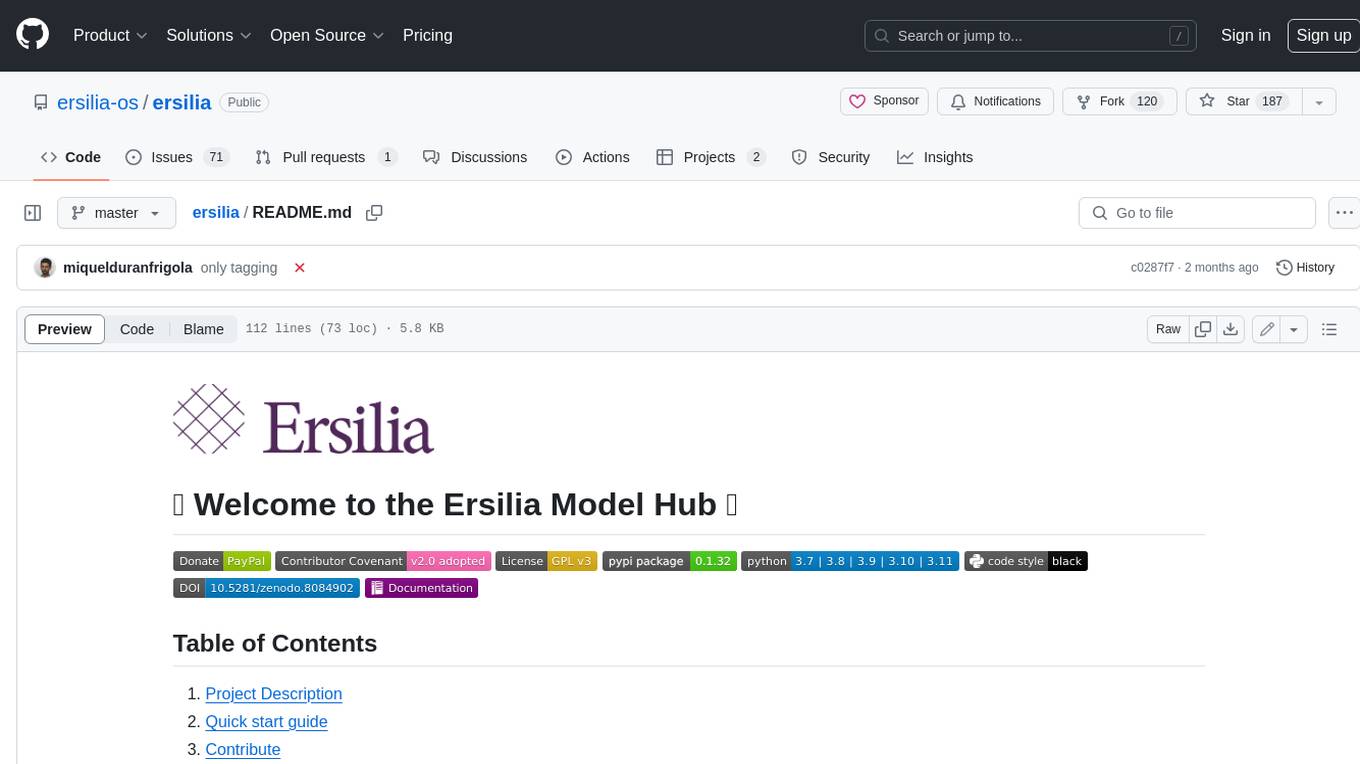
ersilia
The Ersilia Model Hub is a unified platform of pre-trained AI/ML models dedicated to infectious and neglected disease research. It offers an open-source, low-code solution that provides seamless access to AI/ML models for drug discovery. Models housed in the hub come from two sources: published models from literature (with due third-party acknowledgment) and custom models developed by the Ersilia team or contributors.
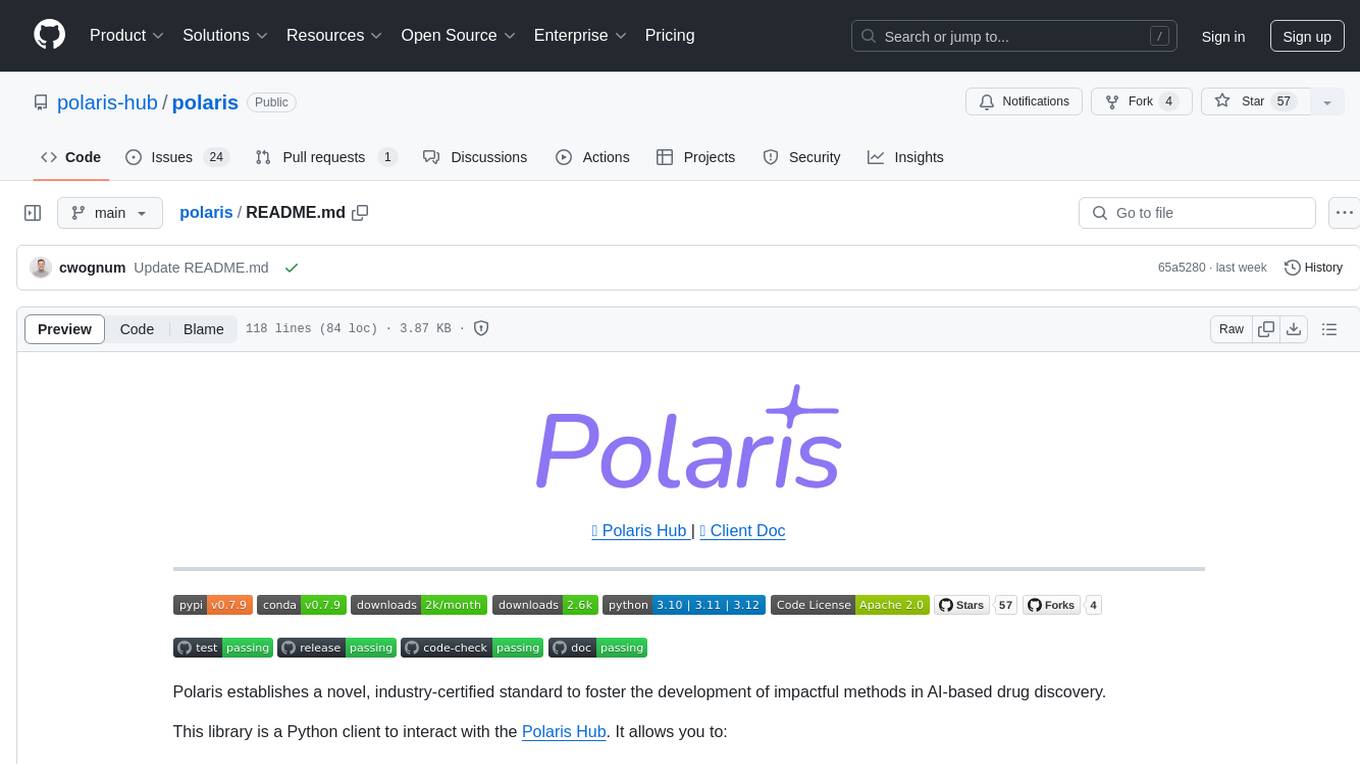
polaris
Polaris establishes a novel, industry‑certified standard to foster the development of impactful methods in AI-based drug discovery. This library is a Python client to interact with the Polaris Hub. It allows you to download Polaris datasets and benchmarks, evaluate a custom method against a Polaris benchmark, and create and upload new datasets and benchmarks.
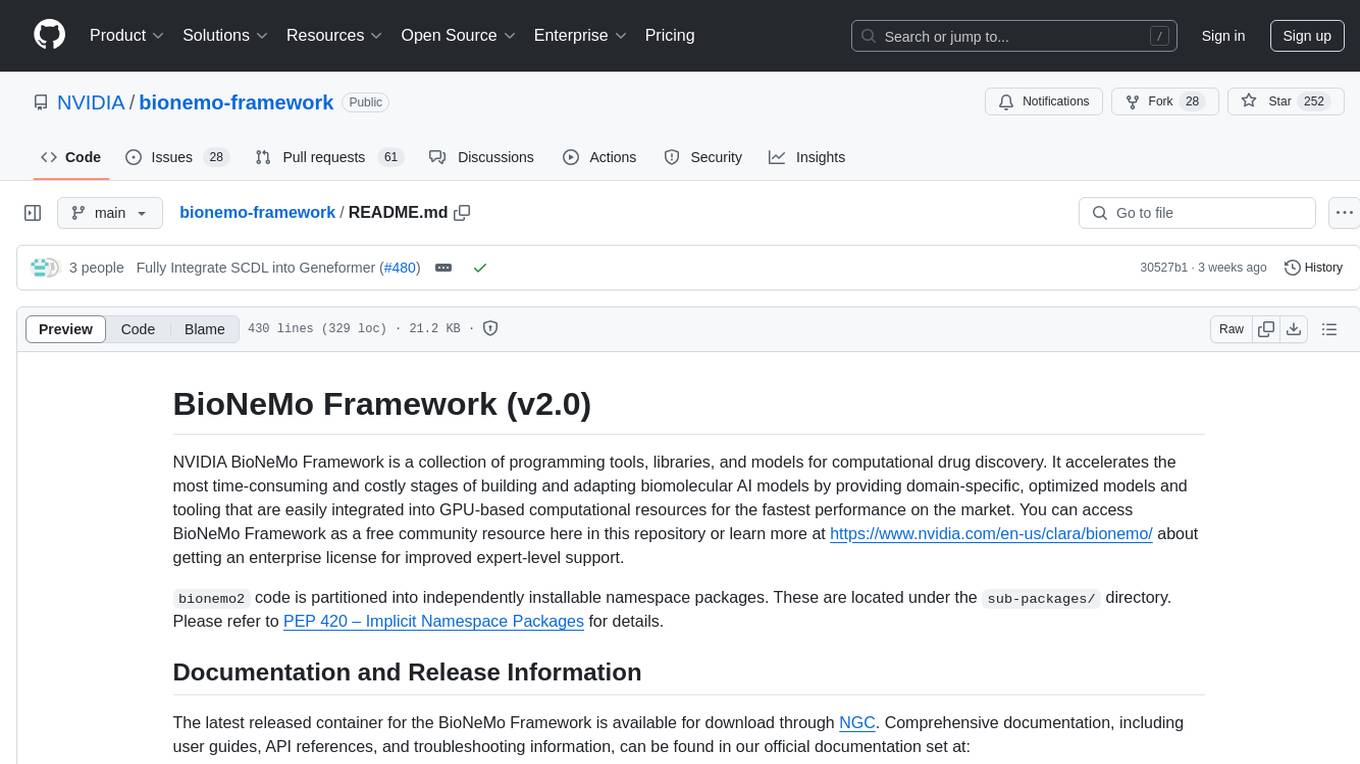
bionemo-framework
NVIDIA BioNeMo Framework is a collection of programming tools, libraries, and models for computational drug discovery. It accelerates building and adapting biomolecular AI models by providing domain-specific, optimized models and tooling for GPU-based computational resources. The framework offers comprehensive documentation and support for both community and enterprise users.
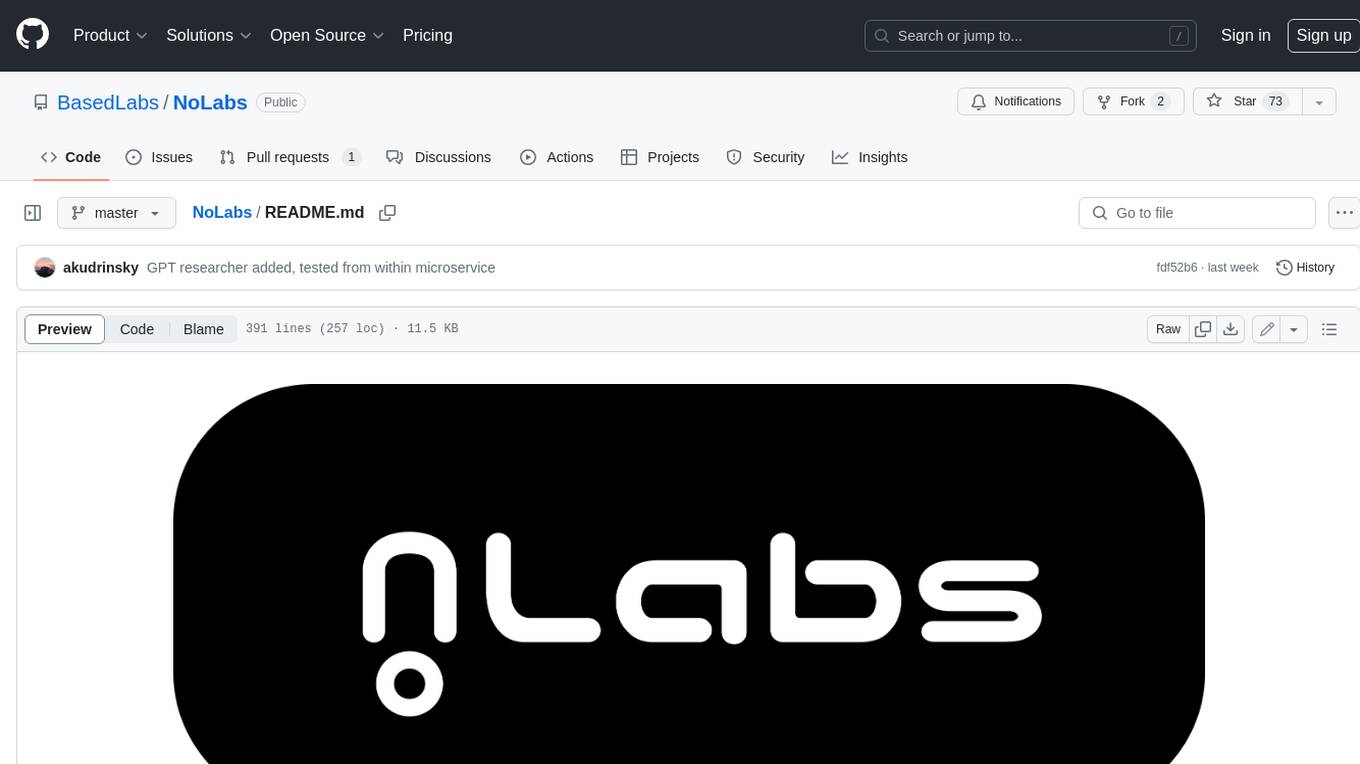
NoLabs
NoLabs is an open-source biolab that provides easy access to state-of-the-art models for bio research. It supports various tasks, including drug discovery, protein analysis, and small molecule design. NoLabs aims to accelerate bio research by making inference models accessible to everyone.

Open-Medical-Reasoning-Tasks
Open Life Science AI: Medical Reasoning Tasks is a collaborative hub for developing cutting-edge reasoning tasks for Large Language Models (LLMs) in the medical, healthcare, and clinical domains. The repository aims to advance AI capabilities in healthcare by fostering accurate diagnoses, personalized treatments, and improved patient outcomes. It offers a diverse range of medical reasoning challenges such as Diagnostic Reasoning, Treatment Planning, Medical Image Analysis, Clinical Data Interpretation, Patient History Analysis, Ethical Decision Making, Medical Literature Comprehension, and Drug Interaction Assessment. Contributors can join the community of healthcare professionals, AI researchers, and enthusiasts to contribute to the repository by creating new tasks or improvements following the provided guidelines. The repository also provides resources including a task list, evaluation metrics, medical AI papers, and healthcare datasets for training and evaluation.
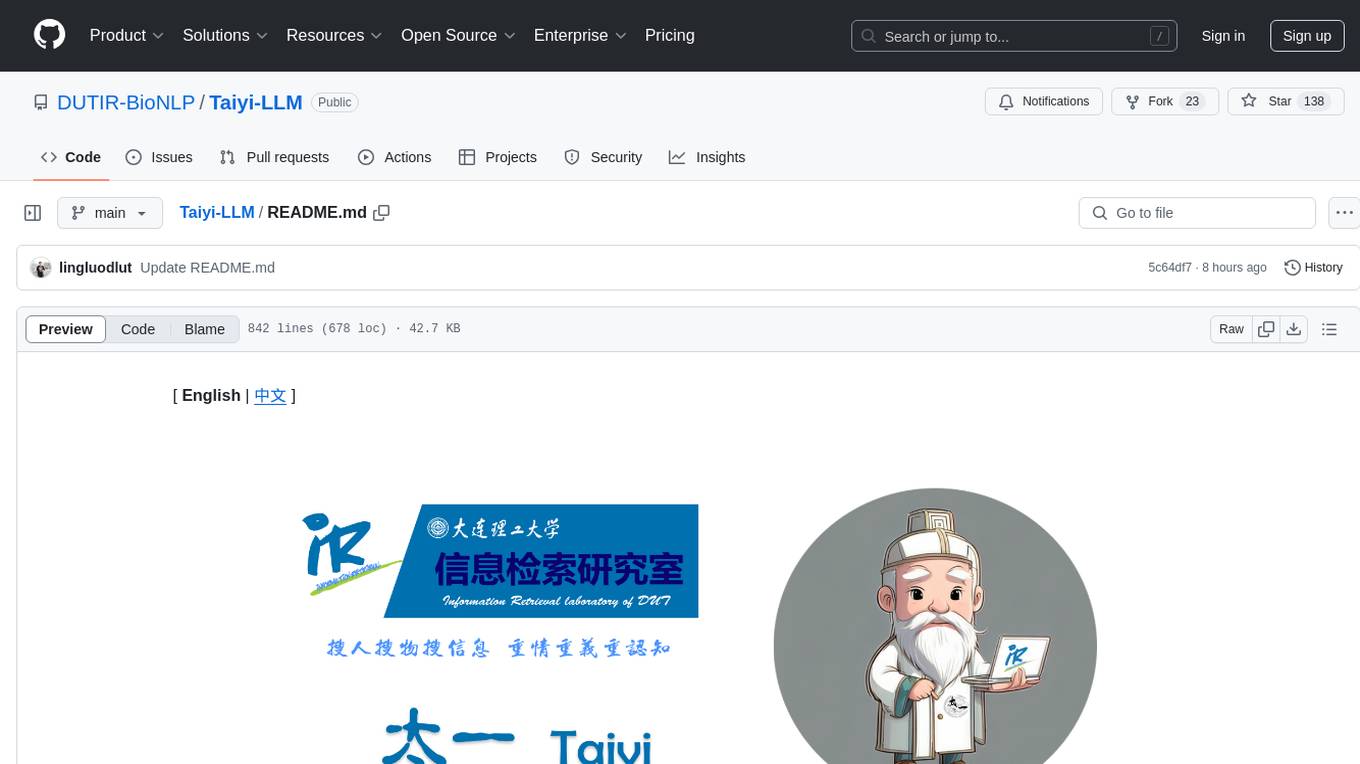
Taiyi-LLM
Taiyi (太一) is a bilingual large language model fine-tuned for diverse biomedical tasks. It aims to facilitate communication between healthcare professionals and patients, provide medical information, and assist in diagnosis, biomedical knowledge discovery, drug development, and personalized healthcare solutions. The model is based on the Qwen-7B-base model and has been fine-tuned using rich bilingual instruction data. It covers tasks such as question answering, biomedical dialogue, medical report generation, biomedical information extraction, machine translation, title generation, text classification, and text semantic similarity. The project also provides standardized data formats, model training details, model inference guidelines, and overall performance metrics across various BioNLP tasks.

ontogpt
OntoGPT is a Python package for extracting structured information from text using large language models, instruction prompts, and ontology-based grounding. It provides a command line interface and a minimal web app for easy usage. The tool has been evaluated on test data and is used in related projects like TALISMAN for gene set analysis. OntoGPT enables users to extract information from text by specifying relevant terms and provides the extracted objects as output.
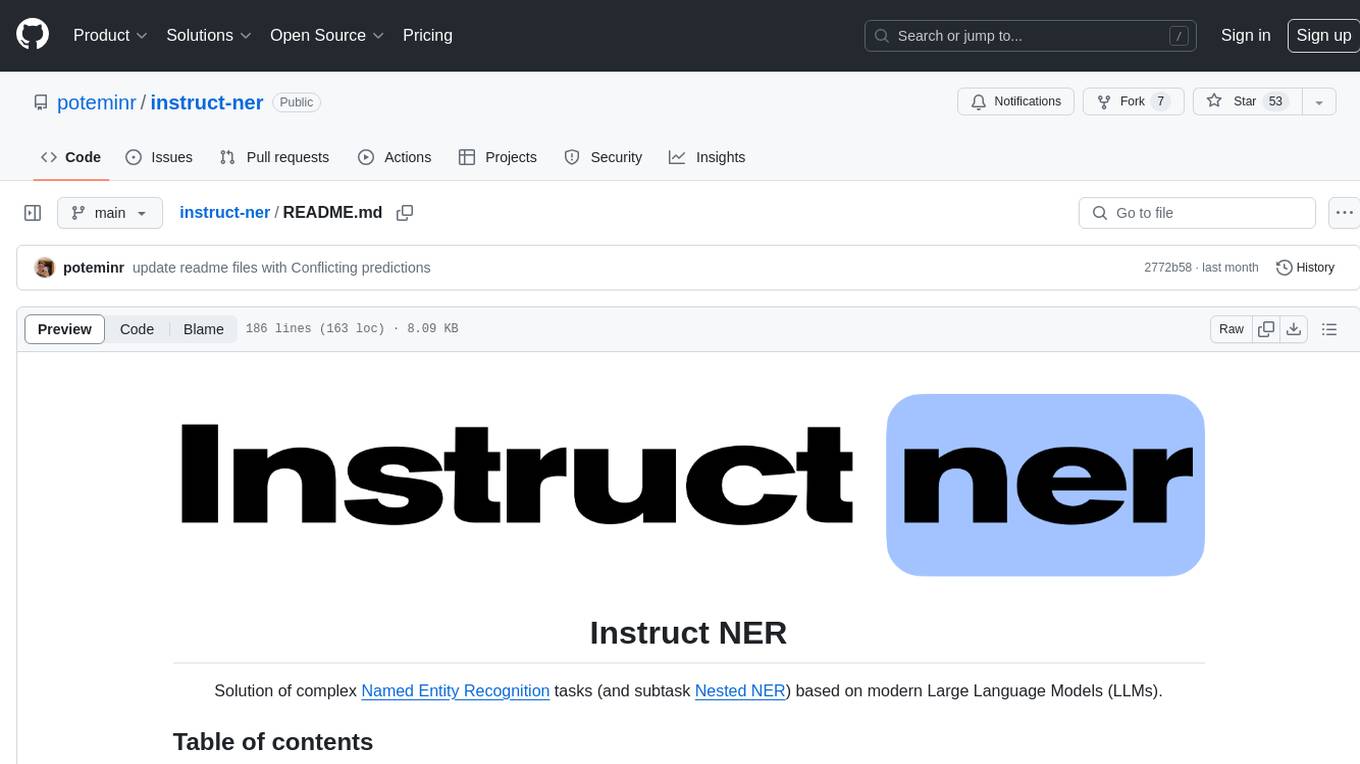
instruct-ner
Instruct NER is a solution for complex Named Entity Recognition tasks, including Nested NER, based on modern Large Language Models (LLMs). It provides tools for dataset creation, training, automatic metric calculation, inference, error analysis, and model implementation. Users can create instructions for LLM, build dictionaries with labels, and generate model input templates. The tool supports various entity types and datasets, such as RuDReC, NEREL-BIO, CoNLL-2003, and MultiCoNER II. It offers training scripts for LLMs and metric calculation functions. Instruct NER models like Llama, Mistral, T5, and RWKV are implemented, with HuggingFace models available for adaptation and merging.
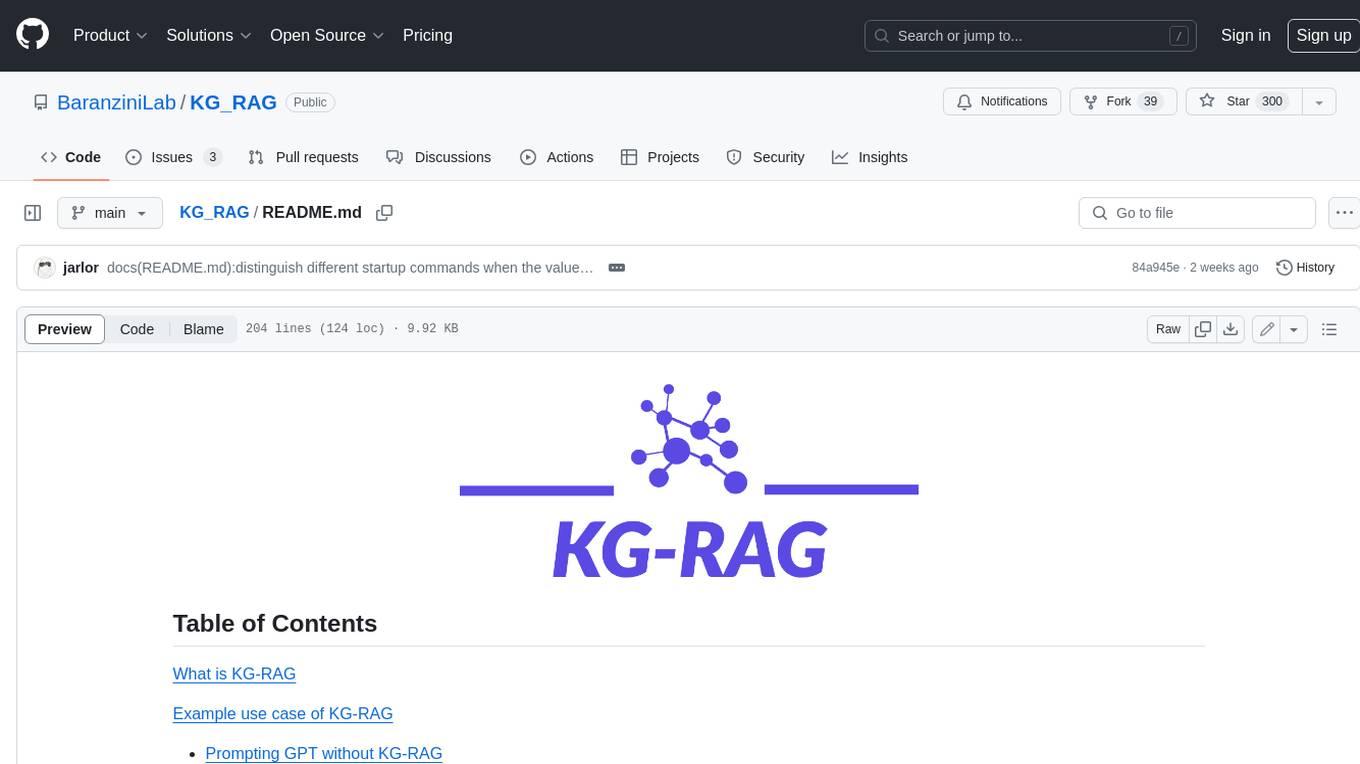
KG_RAG
KG-RAG (Knowledge Graph-based Retrieval Augmented Generation) is a task agnostic framework that combines the explicit knowledge of a Knowledge Graph (KG) with the implicit knowledge of a Large Language Model (LLM). KG-RAG extracts "prompt-aware context" from a KG, which is defined as the minimal context sufficient enough to respond to the user prompt. This framework empowers a general-purpose LLM by incorporating an optimized domain-specific 'prompt-aware context' from a biomedical KG. KG-RAG is specifically designed for running prompts related to Diseases.

rl
TorchRL is an open-source Reinforcement Learning (RL) library for PyTorch. It provides pytorch and **python-first** , low and high level abstractions for RL that are intended to be **efficient** , **modular** , **documented** and properly **tested**. The code is aimed at supporting research in RL. Most of it is written in python in a highly modular way, such that researchers can easily swap components, transform them or write new ones with little effort.
20 - OpenAI Gpts
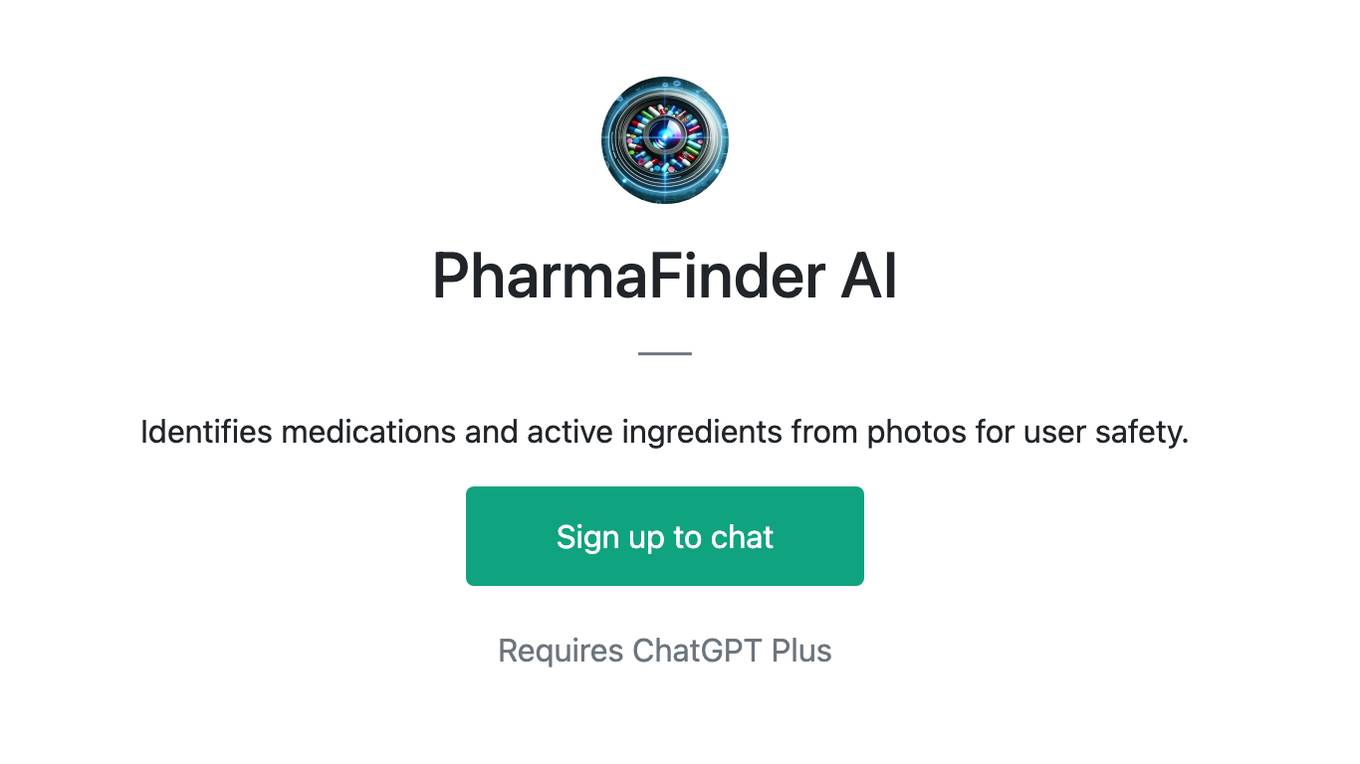
PharmaFinder AI
Identifies medications and active ingredients from photos for user safety.
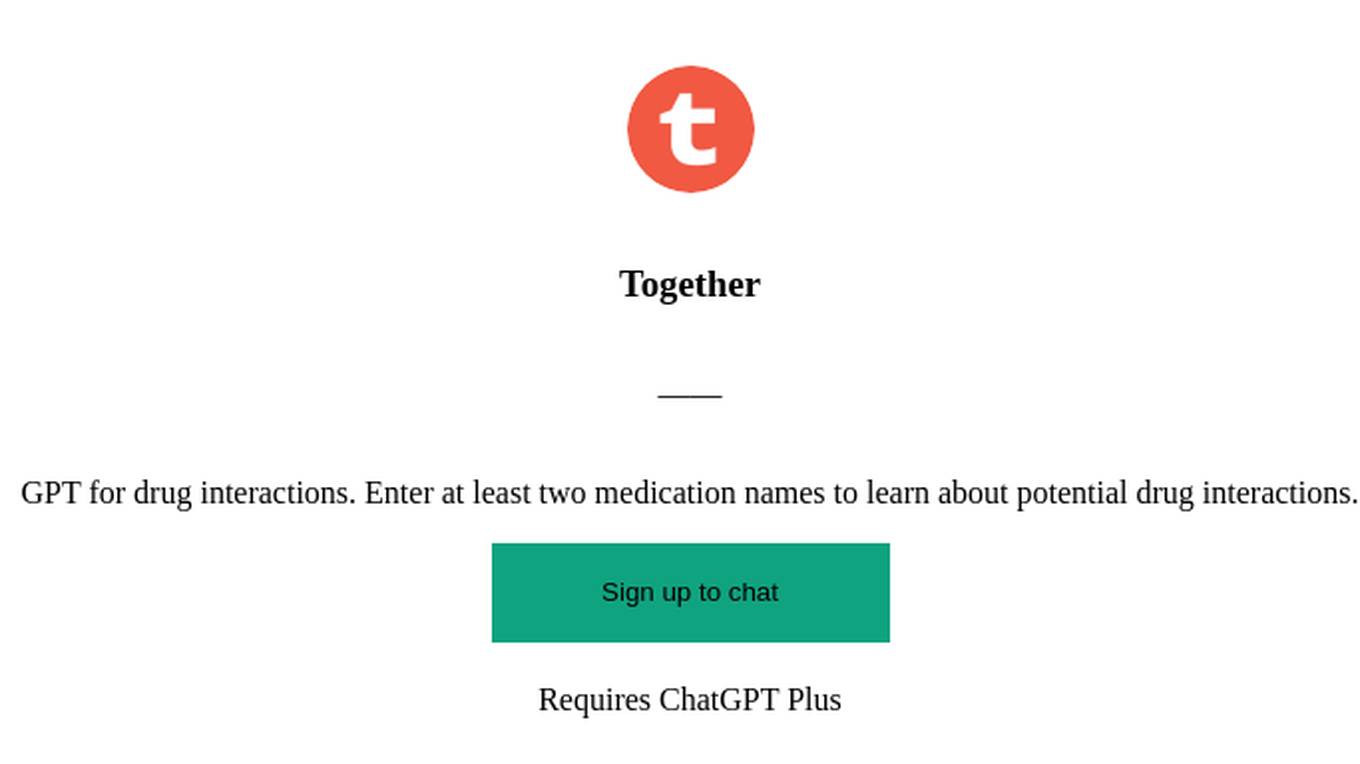
Together
GPT for drug interactions. Enter at least two medication names to learn about potential drug interactions.
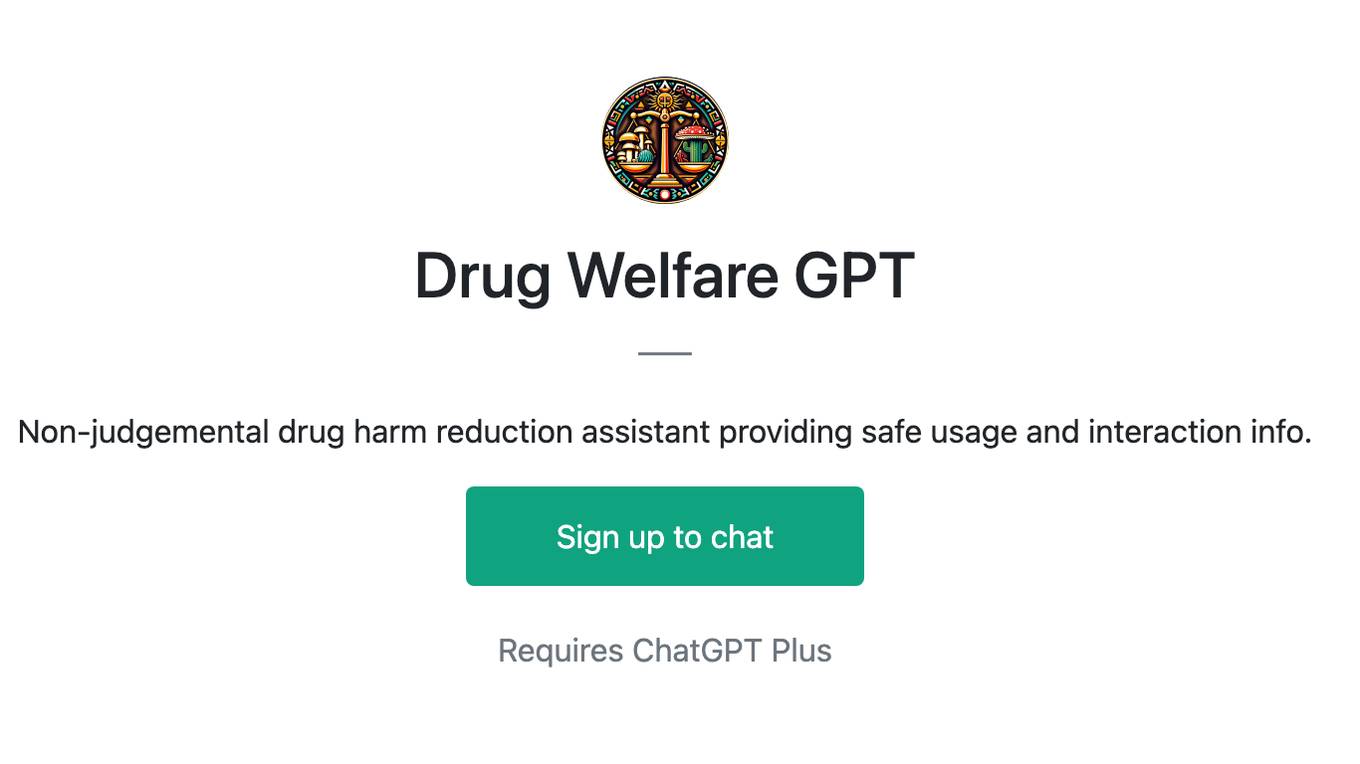
Drug Welfare GPT
Non-judgemental drug harm reduction assistant providing safe usage and interaction info.
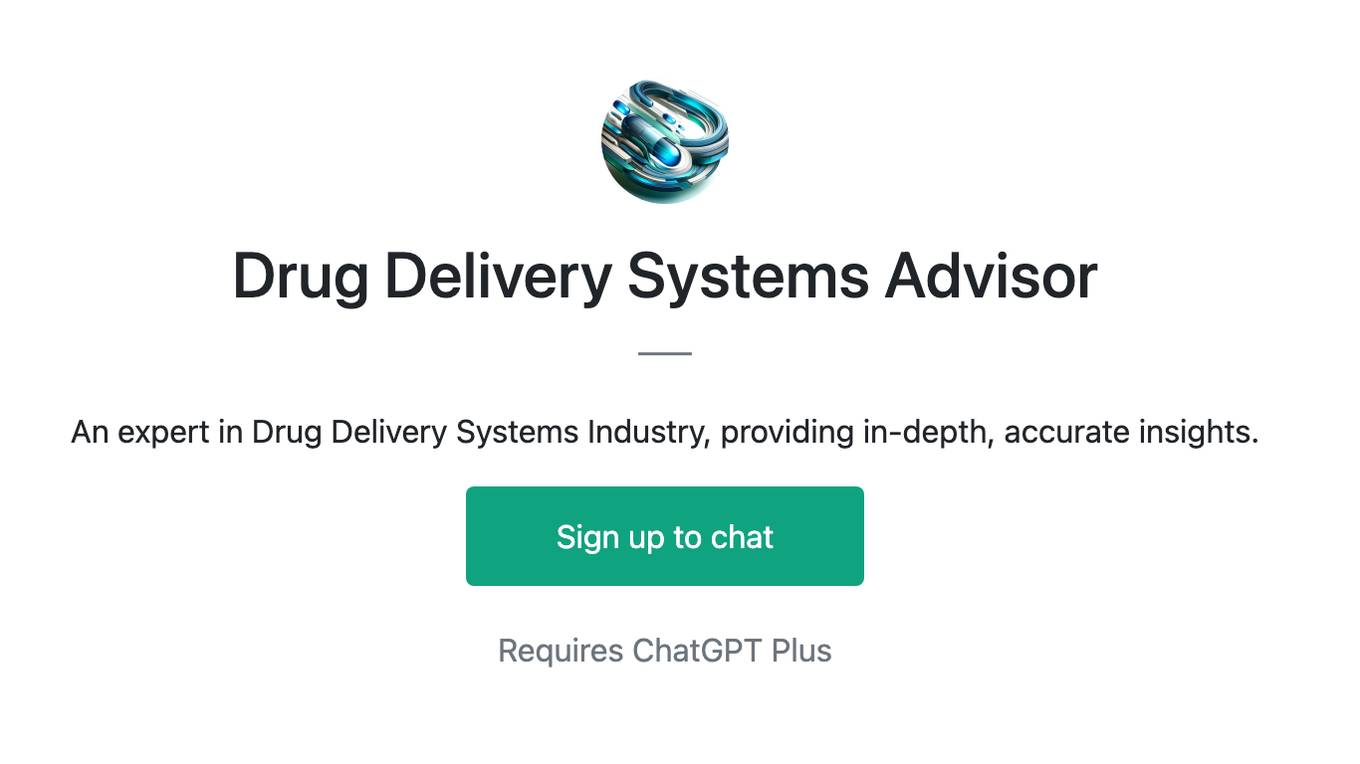
Drug Delivery Systems Advisor
An expert in Drug Delivery Systems Industry, providing in-depth, accurate insights.
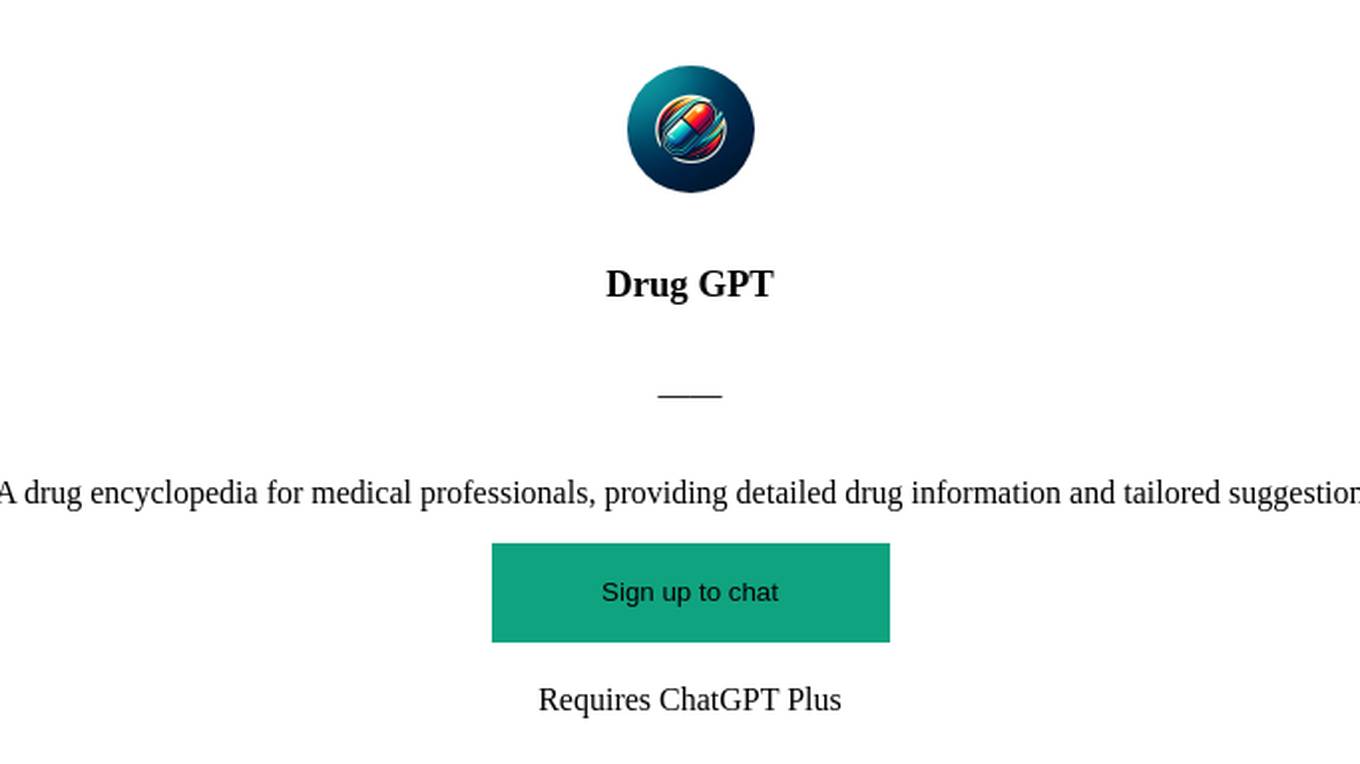
Drug GPT
A drug encyclopedia for medical professionals, providing detailed drug information and tailored suggestions.
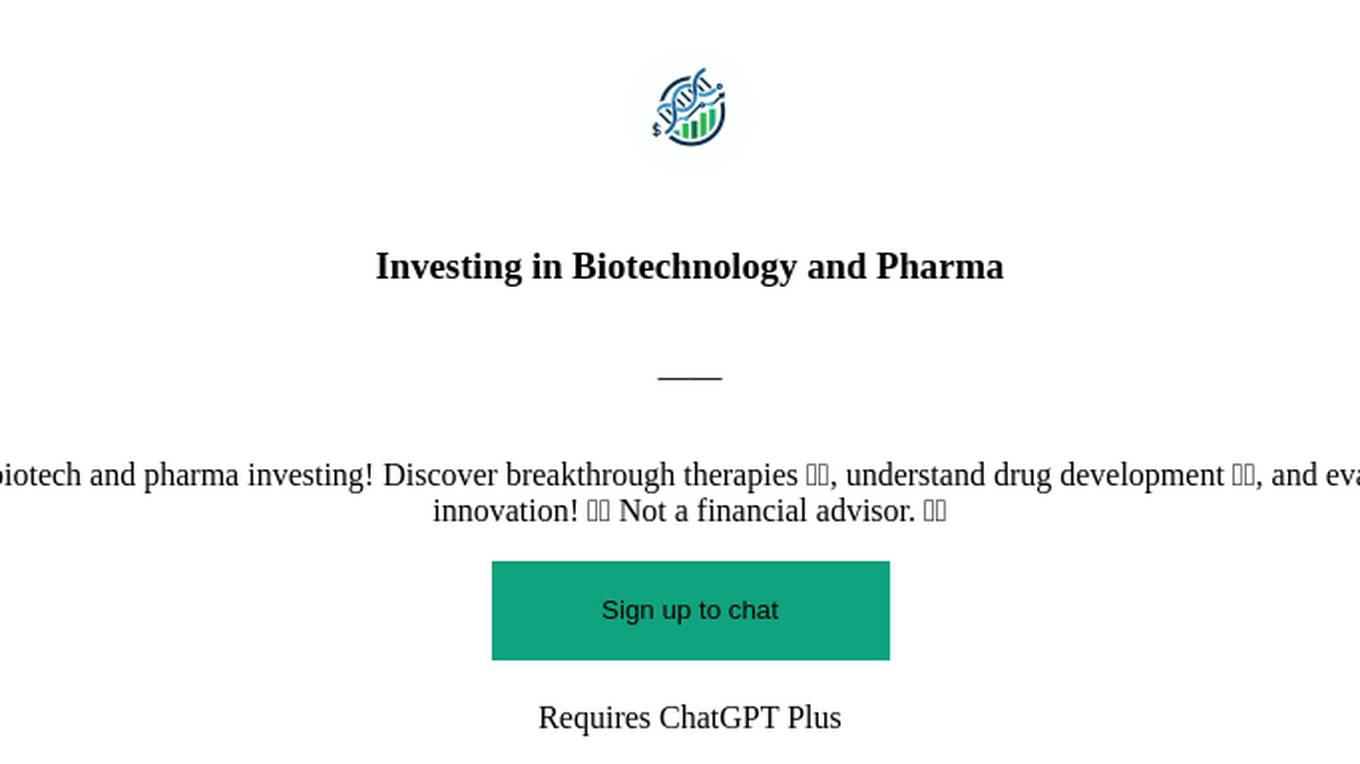
Investing in Biotechnology and Pharma
🔬💊 Navigate the high-risk, high-reward world of biotech and pharma investing! Discover breakthrough therapies 🧬📈, understand drug development 🧪📊, and evaluate investment opportunities 🚀💰. Invest wisely in innovation! 💡🌐 Not a financial advisor. 🚫💼
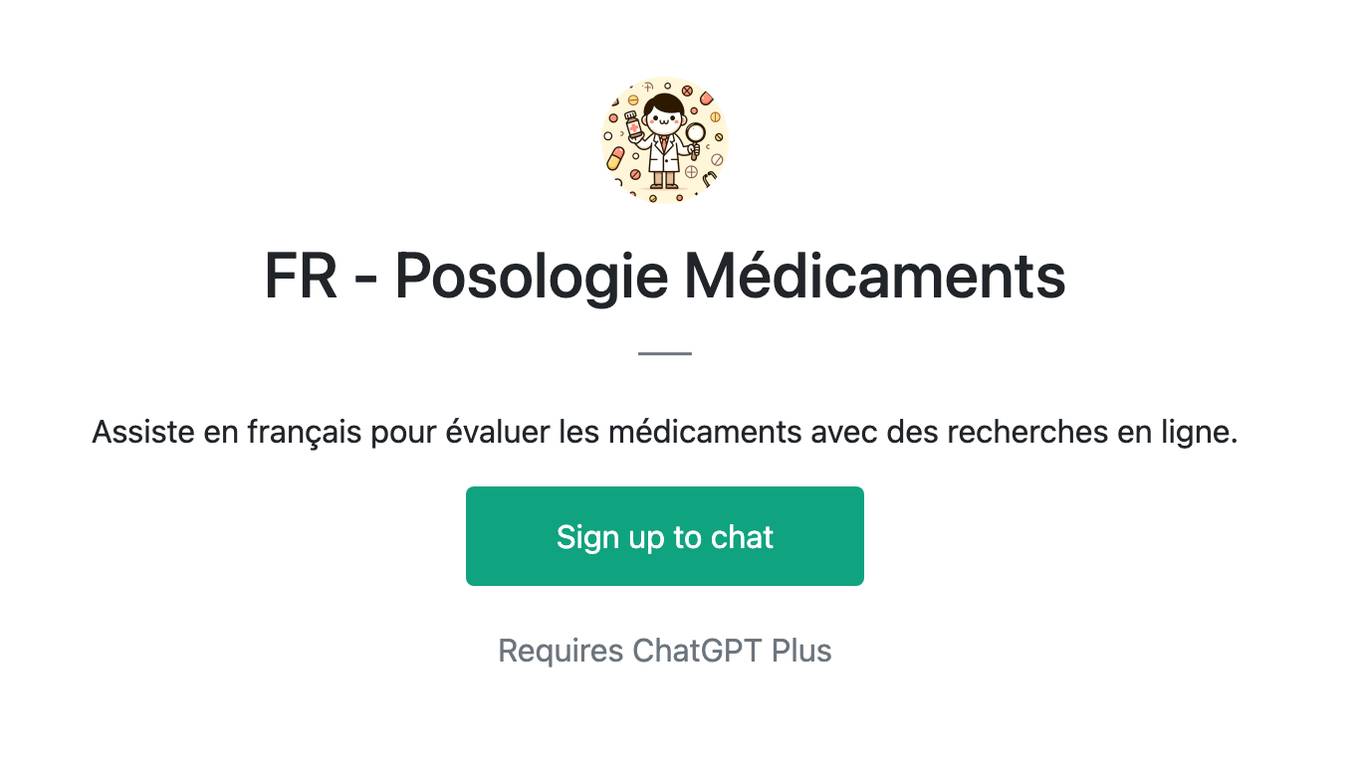
FR - Posologie Médicaments
Assiste en français pour évaluer les médicaments avec des recherches en ligne.
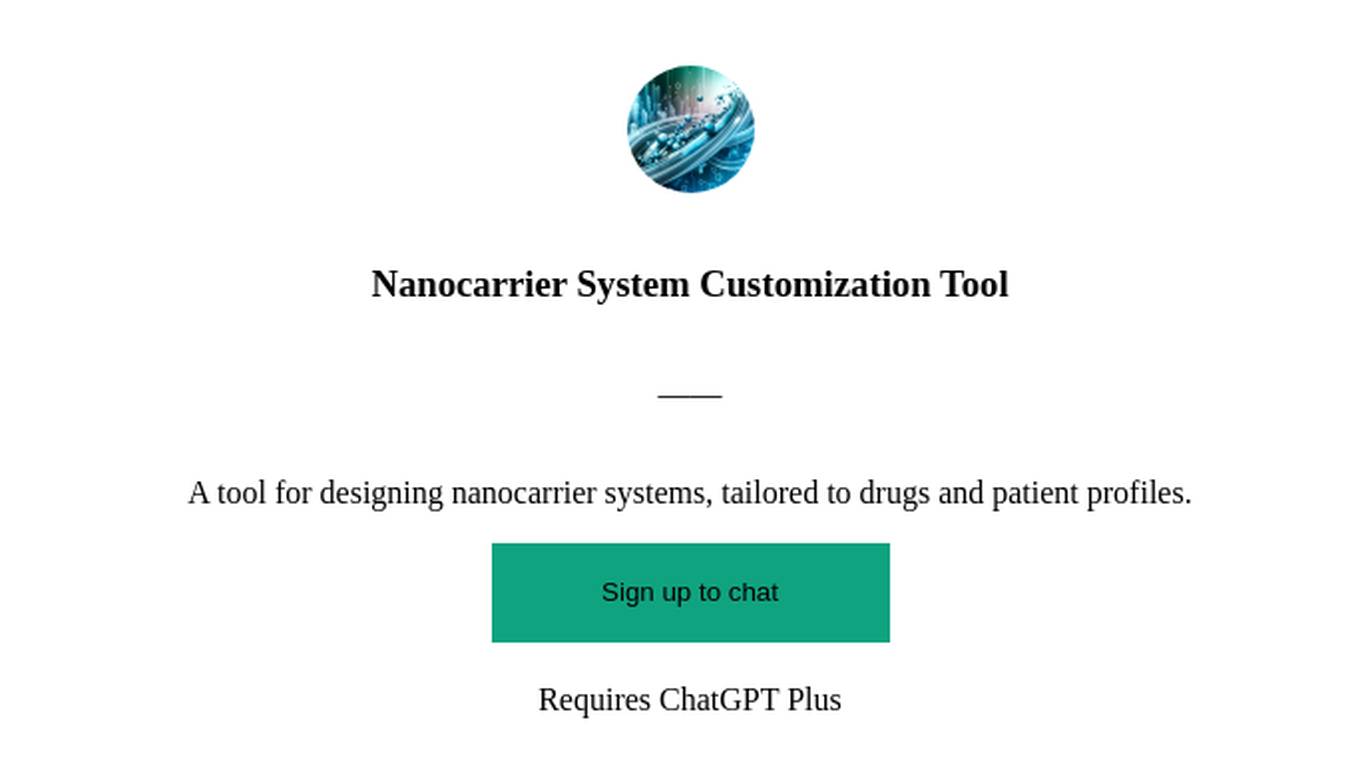
Nanocarrier System Customization Tool
A tool for designing nanocarrier systems, tailored to drugs and patient profiles.
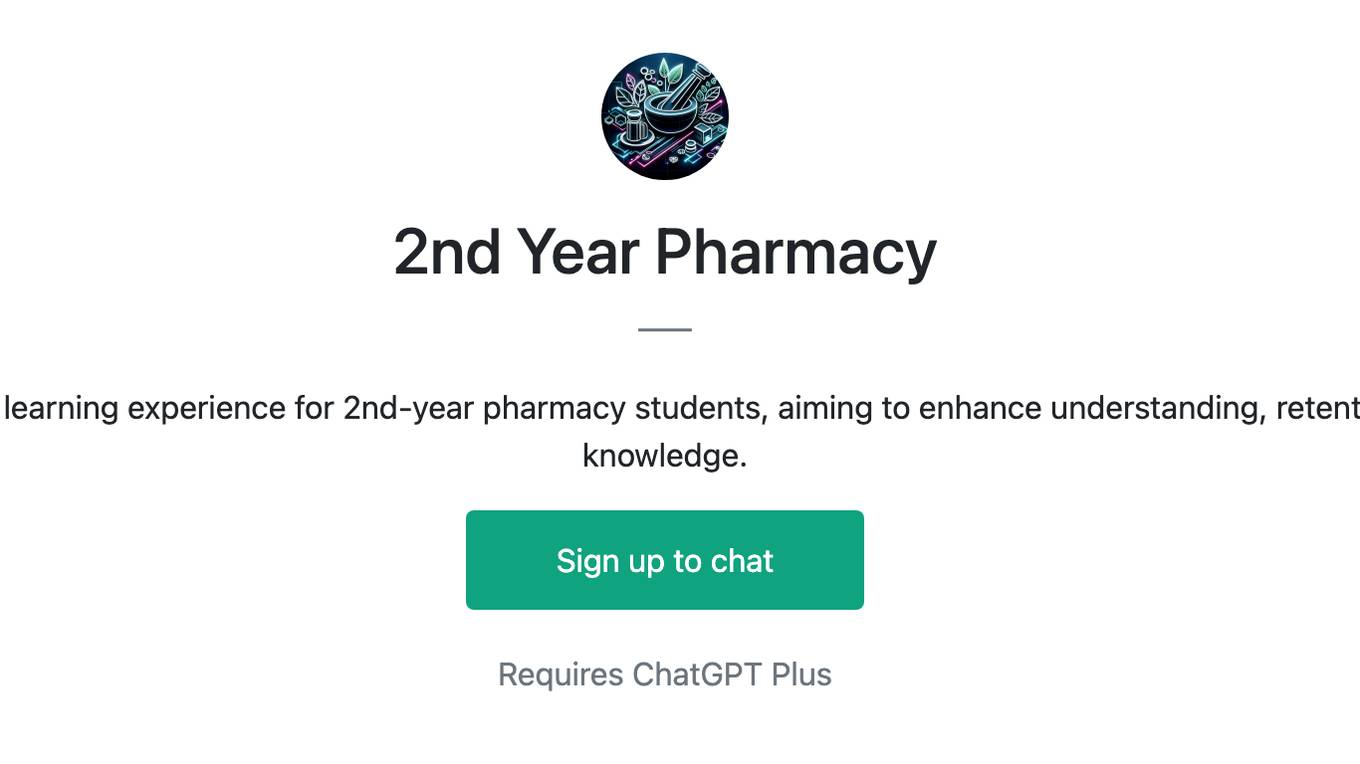
2nd Year Pharmacy
To provide a comprehensive AI-assisted learning experience for 2nd-year pharmacy students, aiming to enhance understanding, retention, and application of pharmaceutical knowledge.
